Air Conditioning
What Is Heat Pump Air Conditioner Maintenance
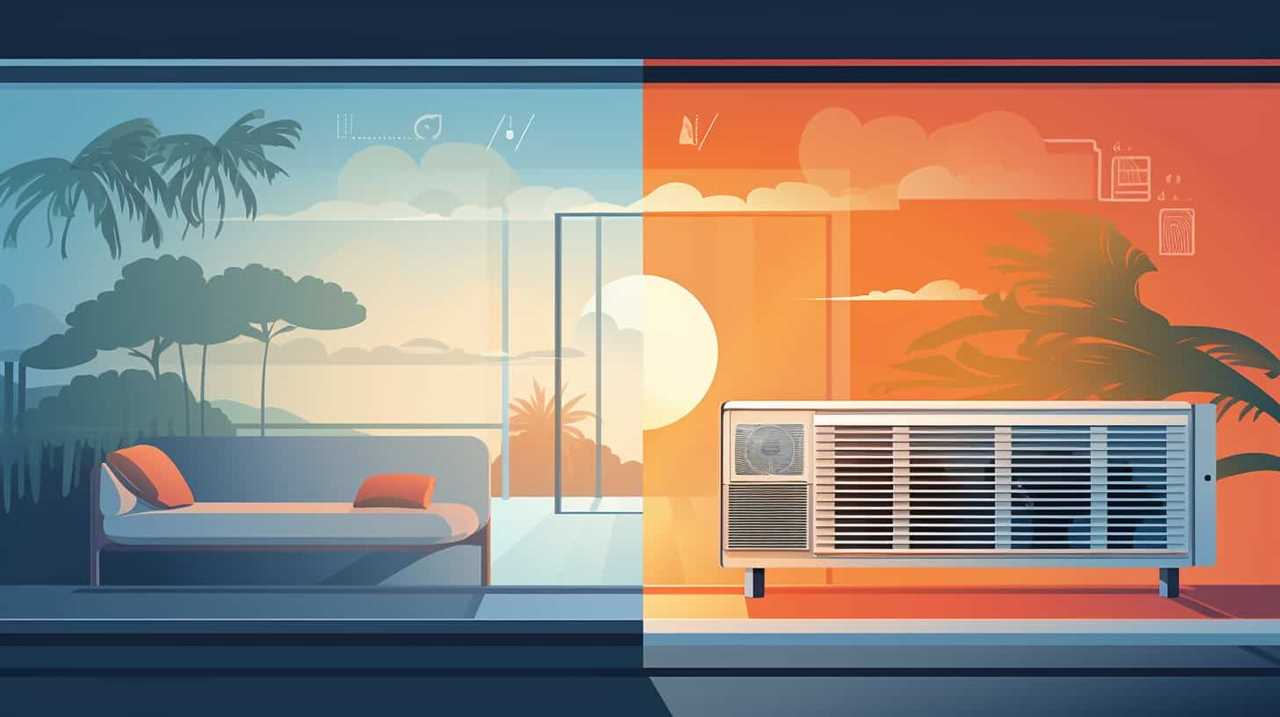
Were you aware that consistent upkeep is crucial for the smooth operation of your heat pump air conditioner? Indeed, overlooking regular maintenance can result in decreased efficiency and expensive repair bills. For this reason, we, as professionals in the industry, advise keeping up with maintenance activities to guarantee peak performance.
In this article, we will explore the importance of regular maintenance, the components of a heat pump air conditioner, common maintenance tasks, signs that your system needs attention, and the benefits of professional maintenance services. Stay tuned for innovative tips and insights!
Key Takeaways
- Regular maintenance is important for optimal performance and longevity of heat pump air conditioners.
- Cleaning or replacing air filters improves energy efficiency and reduces energy consumption.
- Inspection and cleaning of coils and fins enhance heat transfer and energy efficiency.
- Professional maintenance services increase system efficiency, extend equipment lifespan, and prevent costly repairs.
Importance of Regular Maintenance
Regular maintenance is crucial for ensuring the optimal performance and longevity of our heat pump air conditioners. By implementing cost-effective maintenance solutions, we can effectively maximize the efficiency of our units.
One of the key aspects of regular maintenance is cleaning or replacing the air filters. Clogged filters can significantly restrict airflow, resulting in reduced energy efficiency and increased energy consumption.
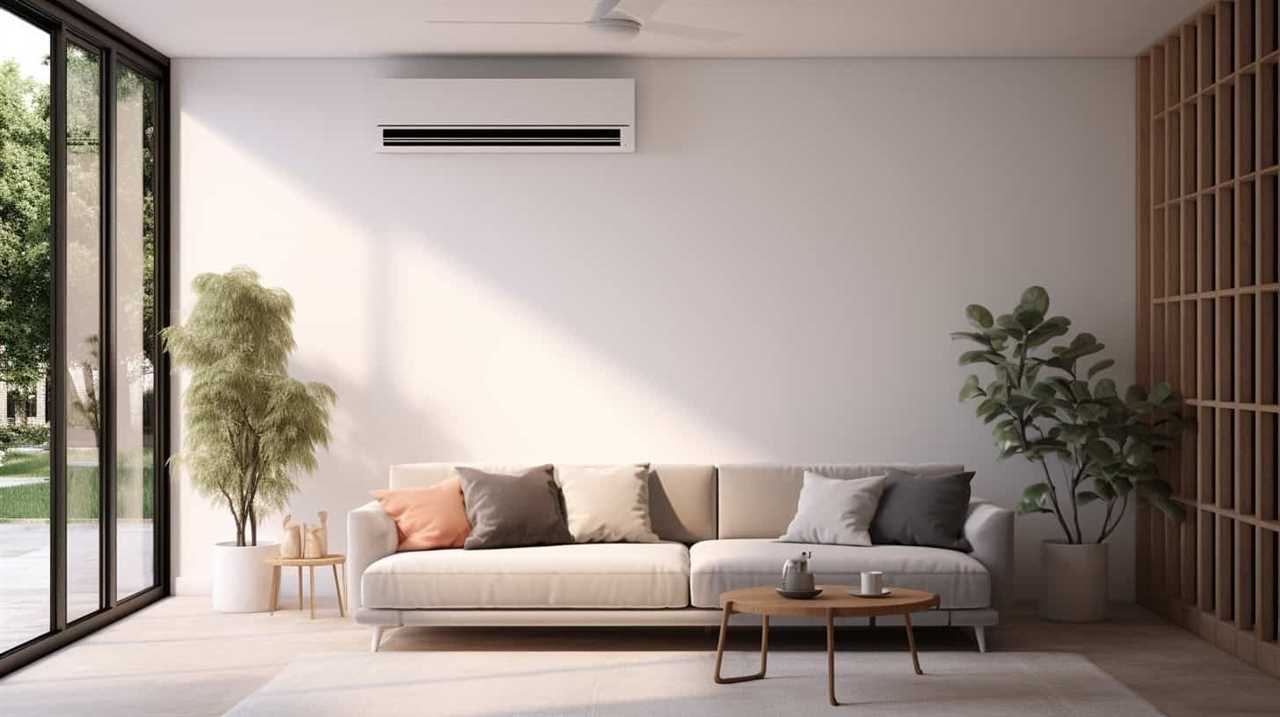
Additionally, regular inspection and cleaning of the coils and fins are essential for proper heat transfer and improved energy efficiency. These components tend to accumulate dirt and debris over time, hindering their ability to effectively transfer heat.
Components of a Heat Pump Air Conditioner
Inspecting and maintaining the components of our heat pump air conditioner, such as the compressor, condenser, and evaporator, is essential for optimal performance. These components play crucial roles in the heat pump installation and contribute to its energy efficiency.
-
Compressor: This vital component compresses the refrigerant gas, increasing its temperature and pressure. It acts as the heart of the heat pump system, ensuring efficient heat transfer and circulation.
-
Condenser: The condenser receives the hot, high-pressure refrigerant from the compressor and cools it down, allowing it to release heat into the surrounding air or water. It plays a crucial role in the heat pump’s ability to extract and transfer heat.
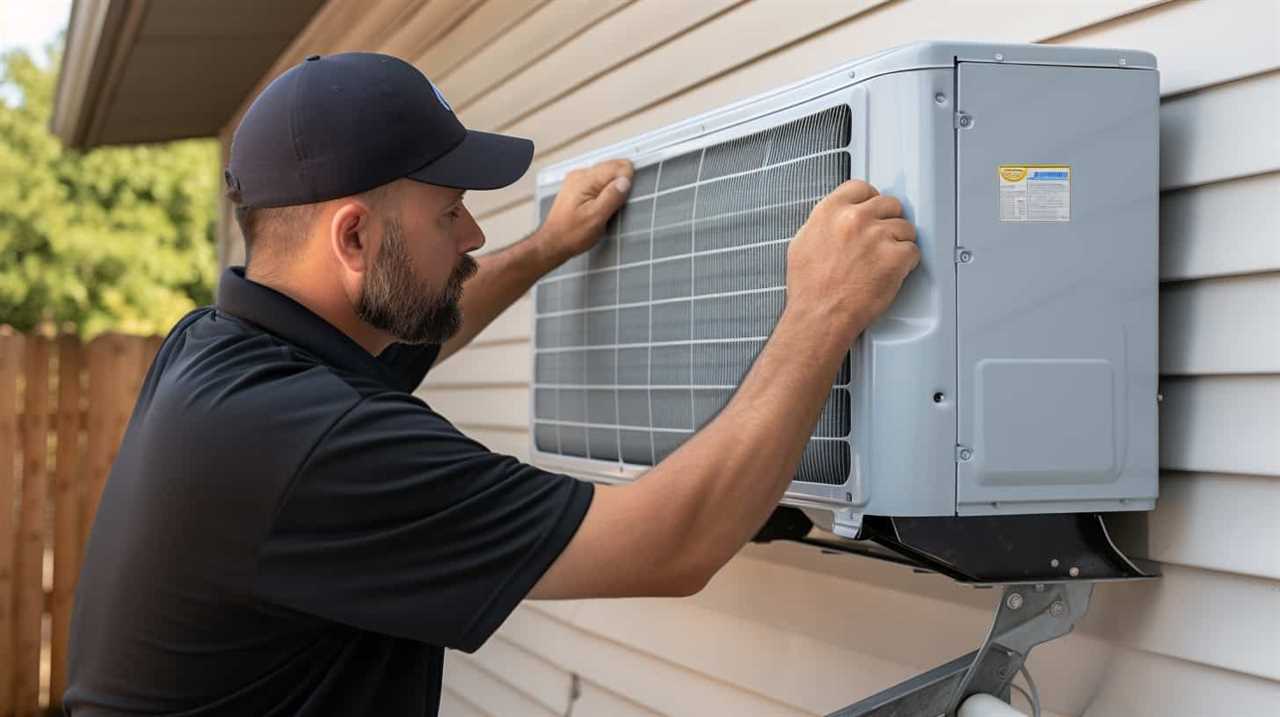
-
Evaporator: The evaporator absorbs heat from the surrounding environment, causing the refrigerant to evaporate and turn into a gas. This process allows the heat pump to cool or heat the desired space effectively.
Common Maintenance Tasks
To keep our heat pump air conditioner running smoothly, we should perform a few essential maintenance tasks.
Firstly, cleaning filters regularly is crucial to ensure proper airflow and prevent the accumulation of dirt and debris. Clogged filters can decrease the system’s efficiency and potentially lead to expensive repairs.
Secondly, checking refrigerant levels is vital for the optimal performance of the heat pump. Low refrigerant levels can result in reduced cooling capacity and increased energy consumption. It’s recommended to hire a professional to inspect and recharge the refrigerant if necessary.
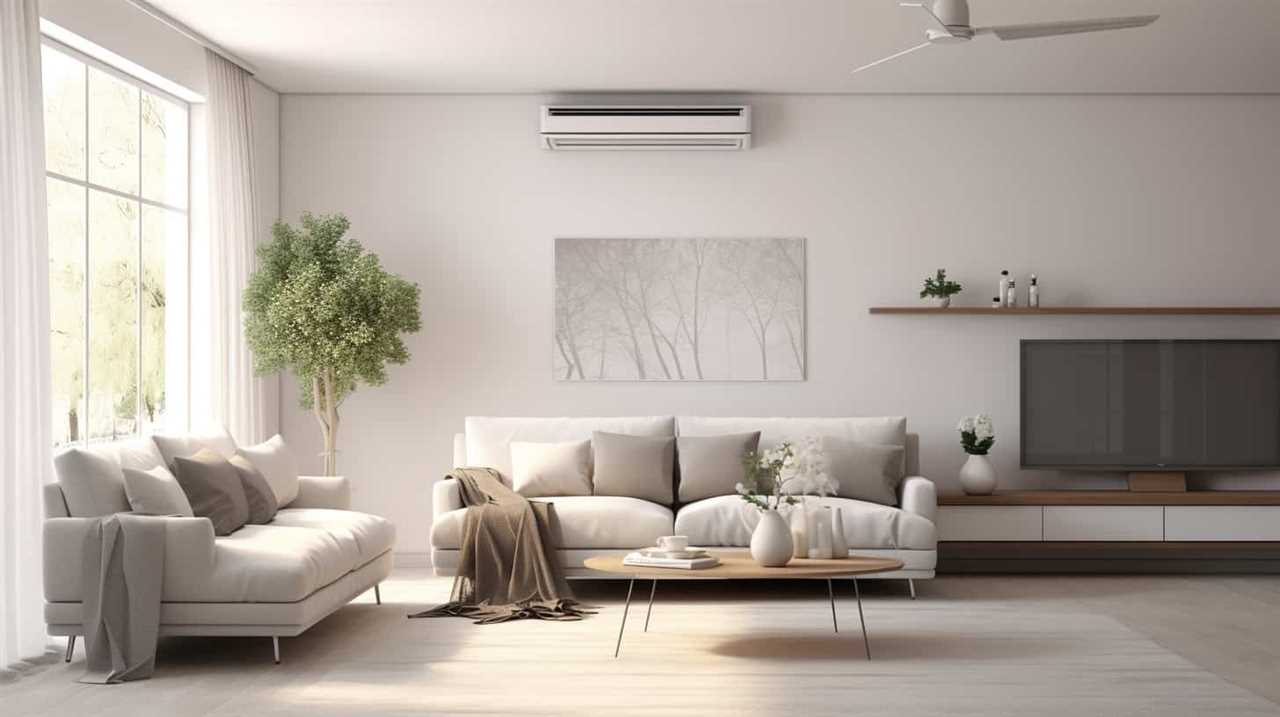
By performing these maintenance tasks, we can ensure that our heat pump air conditioner operates efficiently and effectively.
Now, let’s move on to the next section and explore the signs that indicate our heat pump air conditioner needs maintenance.
Signs Your Heat Pump Air Conditioner Needs Maintenance
One of the first signs we may notice that indicates our heat pump air conditioner needs maintenance is a significant increase in our energy bills. This could be a result of our system not running efficiently due to a lack of maintenance.
Other warning signs of a failing heat pump include strange noises coming from the unit, inconsistent cooling or heating, and unpleasant odors when the system is running. If we notice any of these signs, it’s important to take action and schedule maintenance for our heat pump air conditioner.
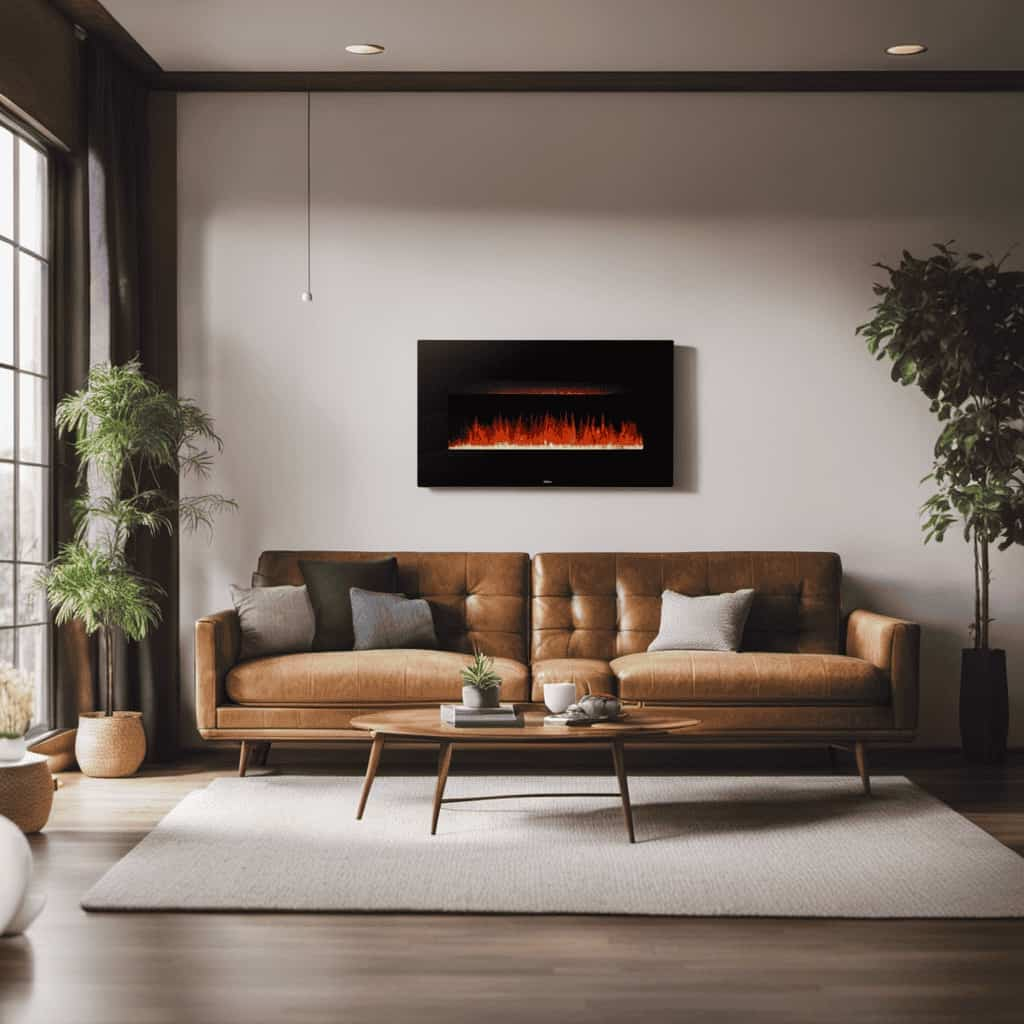
However, before calling a professional, there are some DIY maintenance tips we can try. These include cleaning or replacing air filters regularly, removing debris from the outdoor unit, and checking and adjusting the thermostat settings.
Benefits of Professional Maintenance Services
Hiring a professional for maintenance services offers us numerous benefits, such as increased system efficiency and extended equipment lifespan.
When it comes to heat pump air conditioners, regular maintenance performed by professionals ensures optimal performance and energy efficiency. By keeping the system clean and free from debris, professionals can help improve the system’s efficiency, reducing energy consumption and ultimately leading to cost savings.
Additionally, regular maintenance can help identify and address any potential issues before they become major problems, preventing costly repairs or even the need for premature replacement.
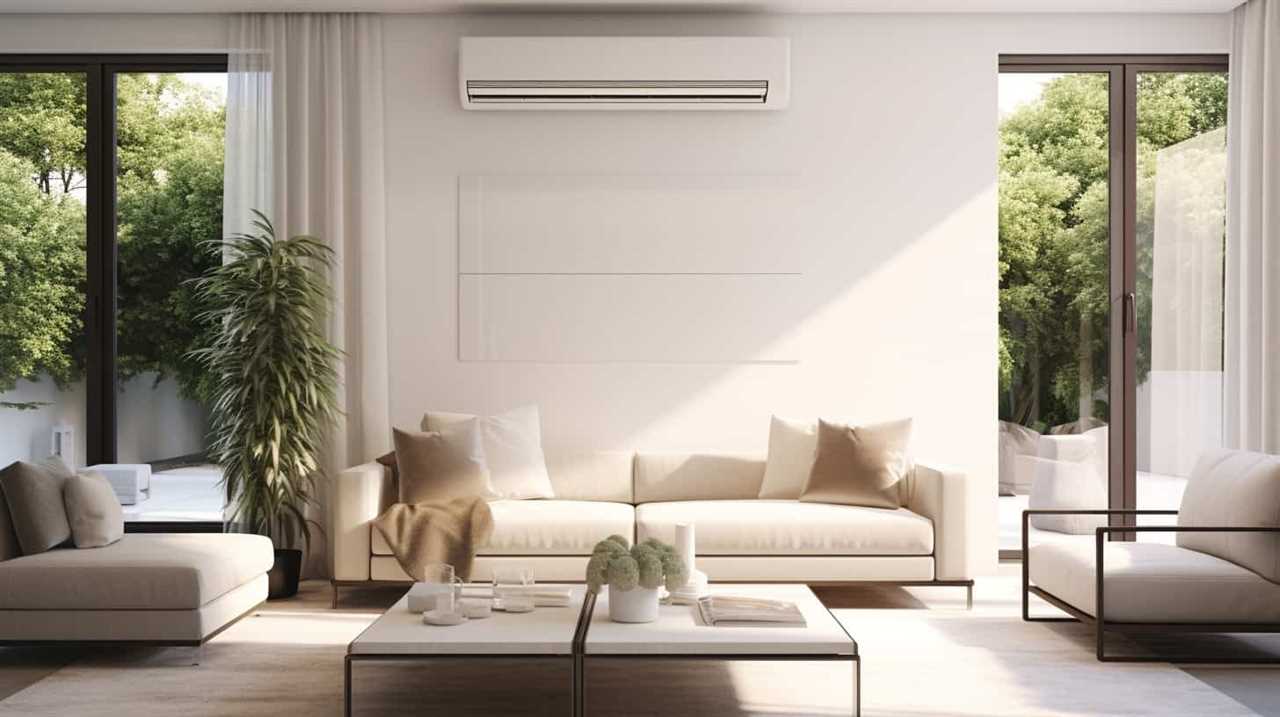
Moreover, professional maintenance services can extend the lifespan of the equipment by ensuring that all components are in good working condition and properly lubricated.
With regular professional maintenance, heat pump air conditioners can continue to operate efficiently and effectively, providing comfort and savings for years to come.
Frequently Asked Questions
How Often Should a Heat Pump Air Conditioner Be Serviced?
We service our heat pump air conditioner annually to ensure optimal performance. Regular maintenance includes following a heat pump air conditioner maintenance checklist and addressing any signs that indicate the need for servicing.
Can I Perform Maintenance Tasks on My Heat Pump Air Conditioner Myself, or Should I Hire a Professional?
We can perform maintenance tasks on our heat pump air conditioner ourselves, but it’s recommended to hire a professional for more complex tasks. Common maintenance mistakes include neglecting regular filter cleaning and improper refrigerant handling.
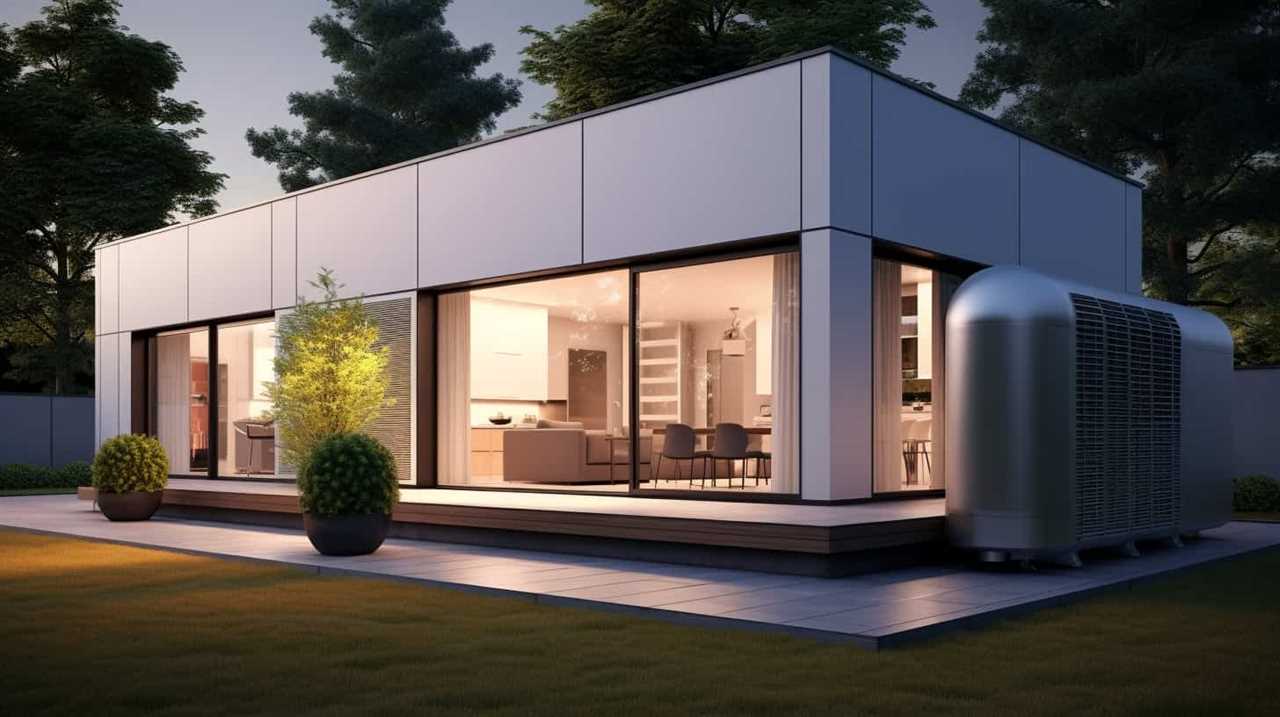
Are There Any Specific Maintenance Tasks That Should Be Done During the Winter Months for a Heat Pump Air Conditioner?
Winter maintenance for a heat pump air conditioner is crucial. Regular maintenance ensures optimal performance and efficiency. Tasks include checking and cleaning filters, inspecting coils, and lubricating moving parts. Don’t neglect this important aspect of your system’s care.
How Long Can I Expect My Heat Pump Air Conditioner to Last With Regular Maintenance?
How long can we expect our heat pump air conditioner to last with regular maintenance? Are there any signs that indicate the need for maintenance? Additionally, what is the estimated cost of heat pump air conditioner maintenance?
Are There Any Energy-Saving Tips or Tricks That Can Help Improve the Efficiency of a Heat Pump Air Conditioner?
To improve the efficiency of a heat pump air conditioner, we recommend implementing energy-saving tips and performing regular maintenance tasks. These strategies can help reduce energy consumption and maximize the performance of your system.
Conclusion
In conclusion, regular maintenance is crucial for the optimal performance and longevity of your heat pump air conditioner. Neglecting maintenance can result in reduced efficiency, increased energy consumption, and potential breakdowns.
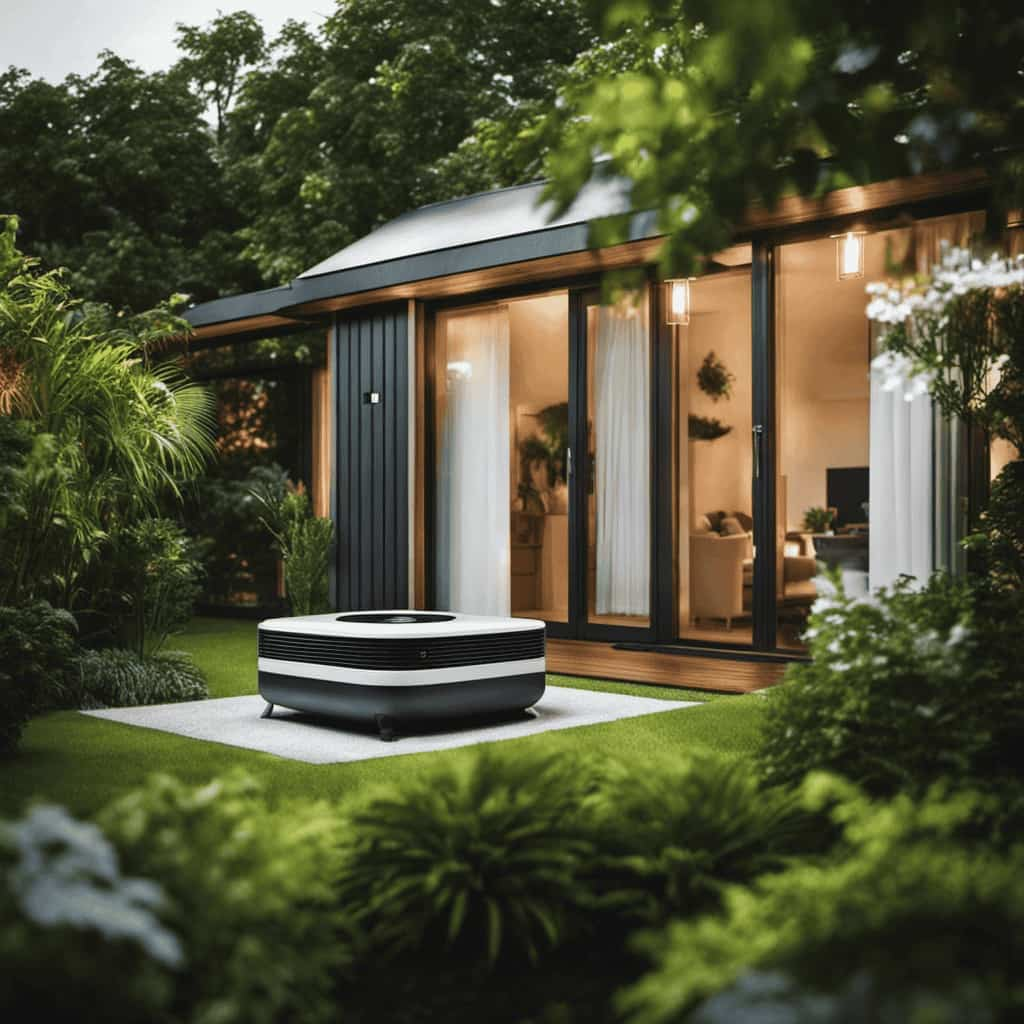
By scheduling professional maintenance services, you can ensure that all components are functioning properly, prevent potential issues, and enjoy the benefits of a well-maintained system.
Just like a well-tuned instrument produces beautiful melodies, a well-maintained heat pump air conditioner creates a comfortable and efficient indoor environment.
Air Conditioning
Heat Pump AC Running Costs: A Comprehensive Analysis
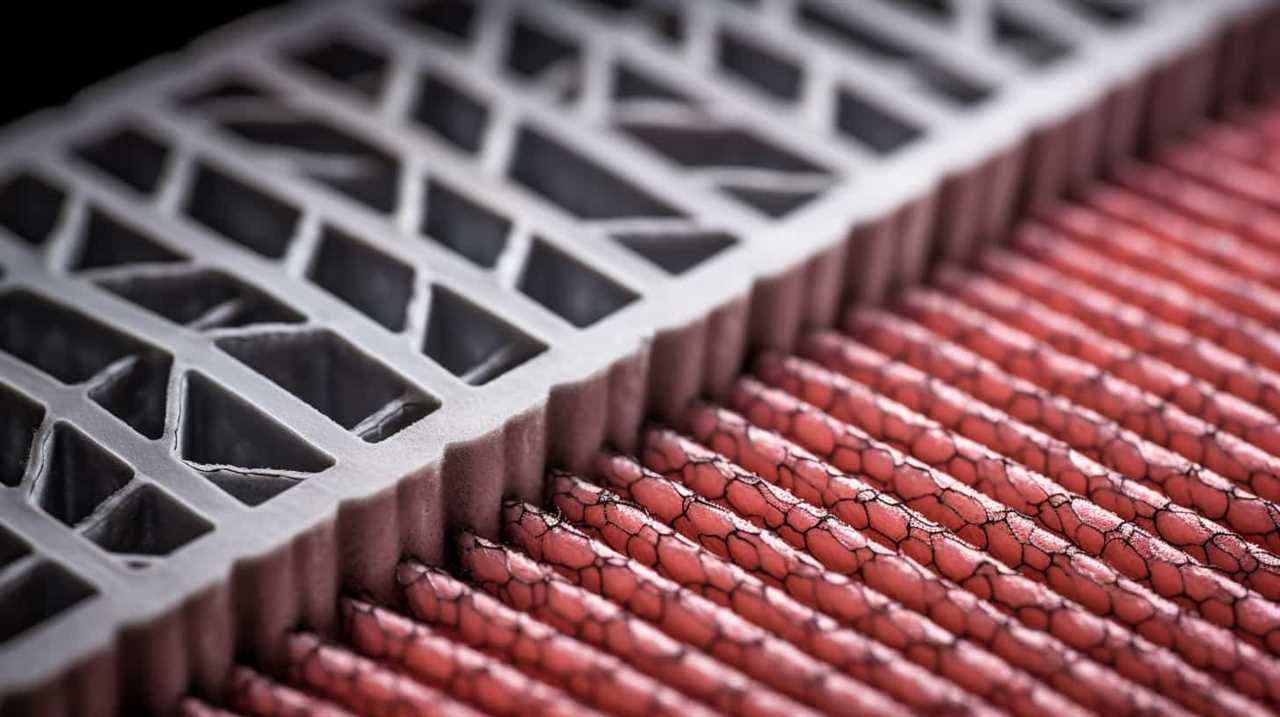
We have all felt the frustration of receiving high energy bills, particularly in the hot summer months. But what if there was a solution to keeping our homes cool without draining our wallets? That’s where heat pump ACs come into play.
In this comprehensive analysis, we delve deep into the factors that affect heat pump AC running costs. From energy efficiency ratings to climate impact and cost-saving strategies, we provide innovative insights to help you make informed decisions and keep your expenses in check.
Key Takeaways
- Installation costs vary based on unit size, complexity, and additional features.
- Energy efficiency ratings provide valuable information about system performance.
- Climate influences efficiency and energy consumption.
- Understanding usage patterns helps identify energy-saving strategies.
Factors Affecting Heat Pump AC Running Costs
When it comes to the running costs of a heat pump AC, there are several factors that can affect them.
One of these factors is the installation costs. The initial cost of installing a heat pump AC system can vary depending on the size of the unit, the complexity of the installation, and any additional features or upgrades. It’s important to consider these costs when budgeting for a heat pump AC system.
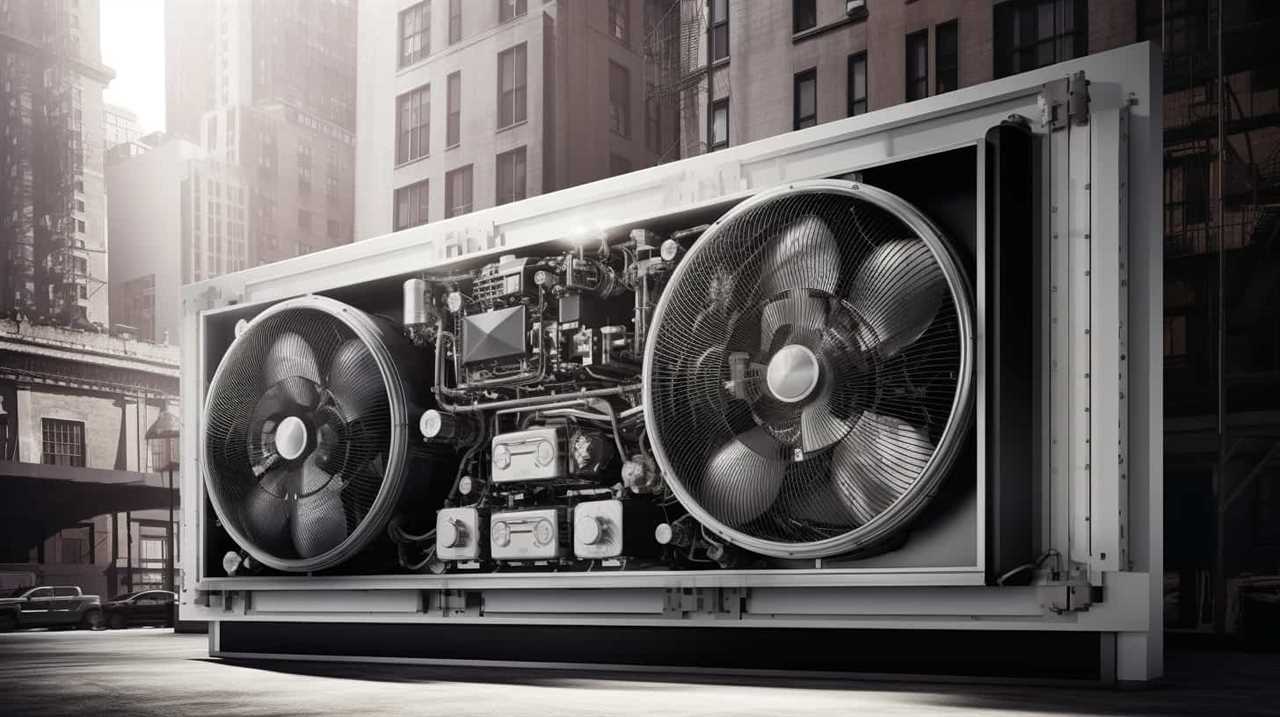
Another factor that can affect the running costs is maintenance expenses. Regular maintenance, such as cleaning or replacing filters, lubricating moving parts, and checking refrigerant levels, can help keep the system running efficiently and reduce energy consumption. However, it’s important to factor in the cost of these maintenance tasks when considering the overall running costs of a heat pump AC system.
Understanding Energy Efficiency Ratings
As we delve into the topic of understanding energy efficiency ratings, it’s important to explore the various factors that contribute to a heat pump AC system’s overall efficiency.
Energy efficiency regulations play a significant role in determining the ratings of these systems. Manufacturers must adhere to these regulations and meet certain criteria to ensure their products are energy efficient.
The ratings themselves provide consumers with valuable information about the system’s performance and energy consumption. Calculating energy savings is another important aspect of understanding energy efficiency ratings.
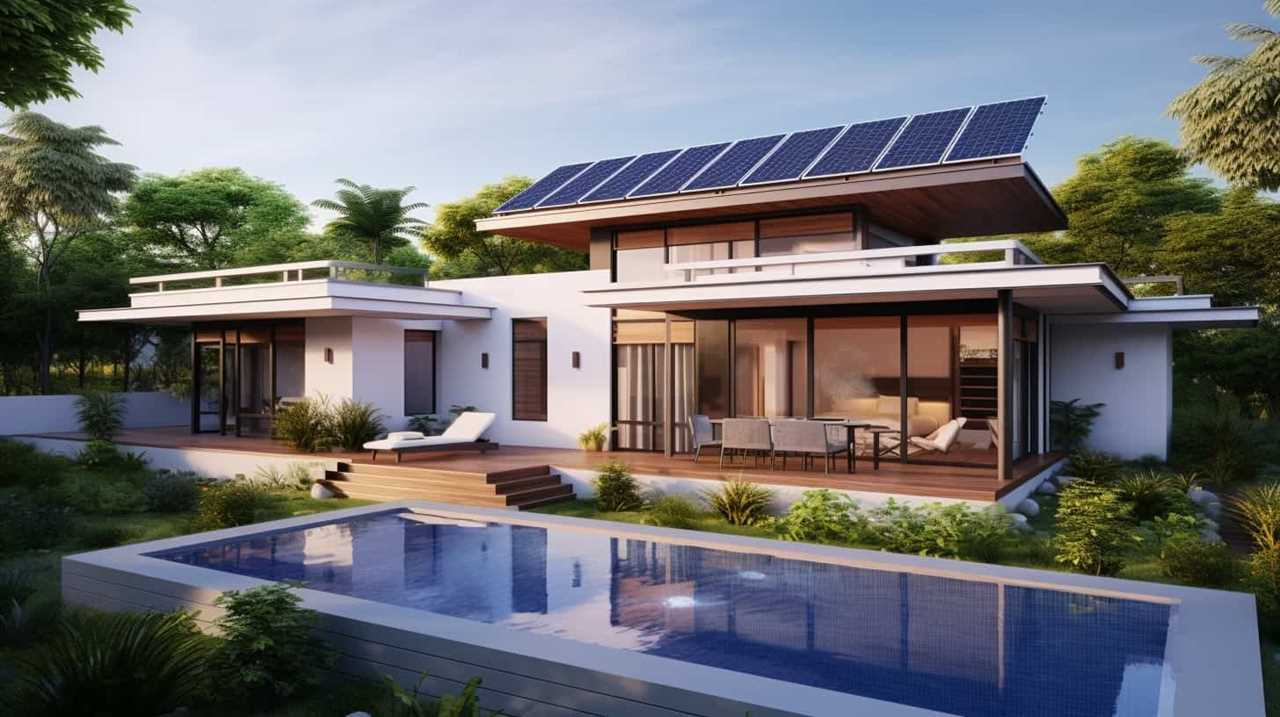
By comparing the energy consumption of different heat pump AC systems, consumers can determine which one will provide the most cost-effective solution in the long run. Understanding these ratings and the potential energy savings they represent is crucial for making informed decisions.
Now, let’s explore the impact of climate on heat pump AC costs.
Impact of Climate on Heat Pump AC Costs
To fully understand the impact of climate on heat pump AC costs, we’ll examine how varying weather conditions can affect the efficiency and energy consumption of these systems. Climate influence plays a significant role in determining the running costs of heat pump ACs. Regional variations in temperature, humidity, and seasonal changes can all affect the performance of these systems.
In hotter climates, where temperatures are consistently high, heat pump ACs may have to work harder to maintain a comfortable indoor temperature. This increased workload can lead to higher energy consumption and ultimately higher running costs.
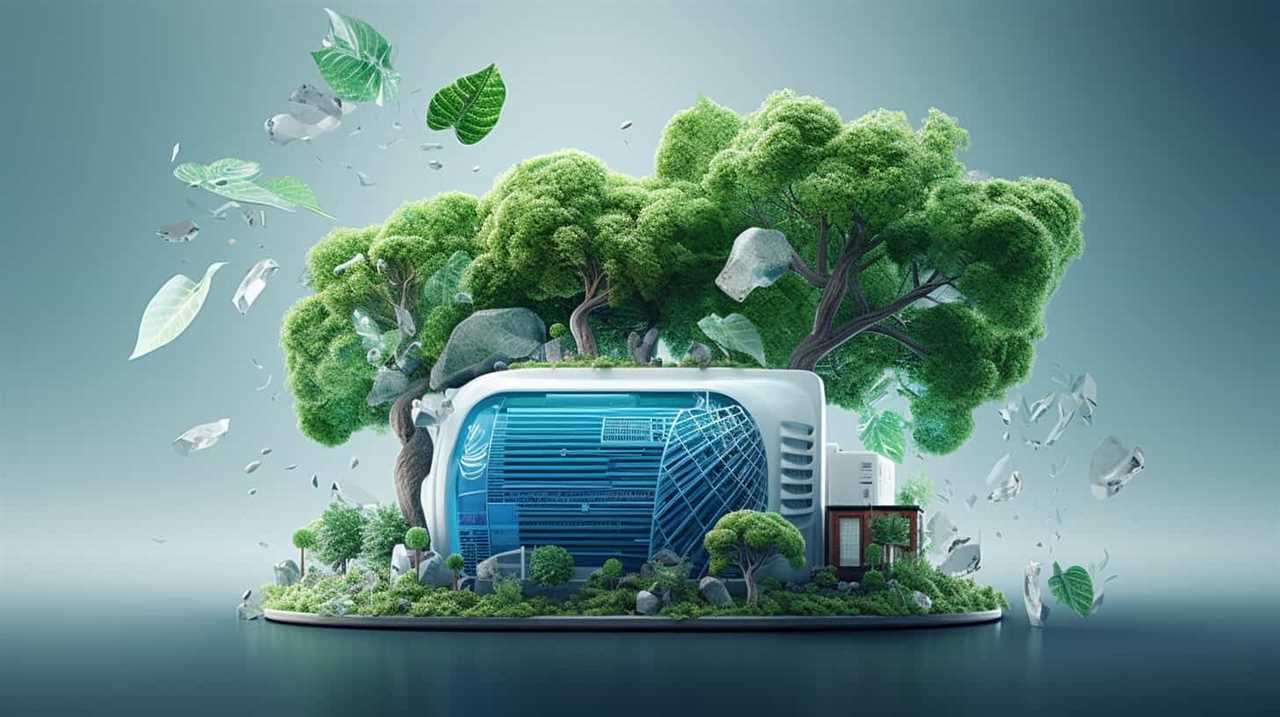
On the other hand, in colder climates, heat pump ACs may struggle to extract heat from the outside air, resulting in reduced efficiency and higher energy usage.
Understanding the impact of climate on heat pump AC costs is crucial for homeowners and businesses alike. By taking regional variations into account, individuals can make informed decisions about the most suitable AC system for their specific location, ensuring optimal efficiency and cost-effectiveness.
Analyzing Usage Patterns and Their Financial Consequences
We can assess usage patterns and understand their financial consequences by examining how different factors, such as occupancy levels and temperature settings, impact the running costs of heat pump AC systems. By analyzing these usage patterns, we can identify energy saving tips and strategies that can lead to long term savings for heat pump AC owners.
To better illustrate the impact of these factors on running costs, consider the following table:
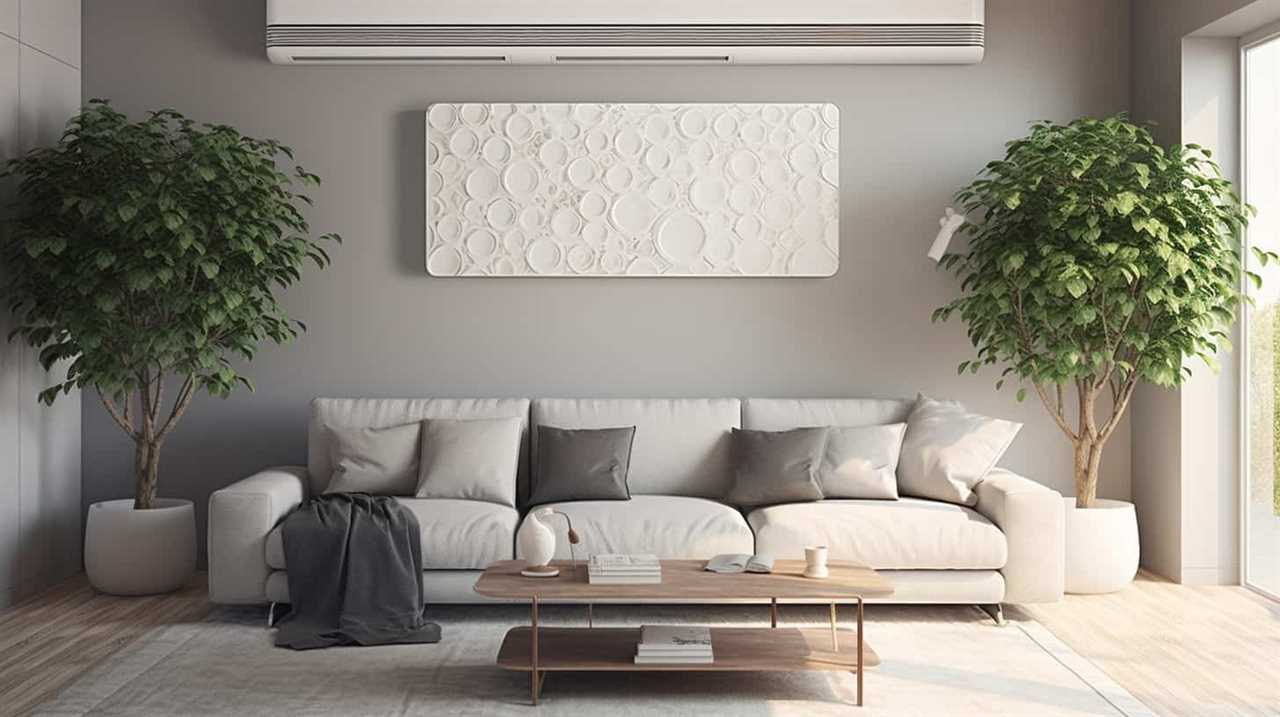
| Factor | Impact on Running Costs |
|---|---|
| Occupancy Levels | Higher occupancy levels result in increased usage and higher running costs. |
| Temperature Settings | Lowering the temperature setting can significantly reduce energy consumption and running costs. |
| Timed Usage | Setting timers to turn off the AC when not needed can lead to substantial energy savings. |
| Maintenance | Regular maintenance ensures optimal performance, leading to lower running costs. |
Understanding how these factors influence running costs can help heat pump AC owners make informed decisions to optimize their usage and achieve long term savings.
Now, let’s explore cost-saving strategies for heat pump AC owners.
Cost-saving Strategies for Heat Pump AC Owners
Two cost-saving strategies for heat pump AC owners are implementing a programmable thermostat and scheduling regular maintenance.
A programmable thermostat allows you to set different temperature levels for different times of the day, ensuring that your heat pump AC runs only when necessary. This can result in significant energy savings and lower utility bills.

Regular maintenance is also crucial to keep your heat pump AC running efficiently. By scheduling maintenance checks at least once a year, you can ensure that your system is clean, properly lubricated, and operating at its optimal level. This not only improves energy efficiency but also extends the lifespan of your heat pump AC.
Frequently Asked Questions
Are There Any Government Incentives or Rebates Available for Purchasing a Heat Pump Ac?
There are government incentives and rebates available for purchasing a heat pump AC. These incentives aim to promote energy efficiency and reduce carbon emissions. Heat pump efficiency is a key factor in determining the eligibility for these incentives.
What Are the Potential Environmental Benefits of Using a Heat Pump AC Compared to Traditional Air Conditioning Systems?
Using a heat pump AC can potentially lead to significant energy savings compared to traditional systems. This translates to a reduced impact on greenhouse gas emissions, making it an environmentally-friendly choice for innovation-minded individuals.
Can a Heat Pump AC Be Used to Cool Multiple Rooms at the Same Time, or Is It Only Effective for Single-Zone Cooling?
Yes, a heat pump AC can be used to cool multiple rooms at the same time. It is not limited to single-zone cooling and offers the convenience and efficiency of cooling multiple areas simultaneously.
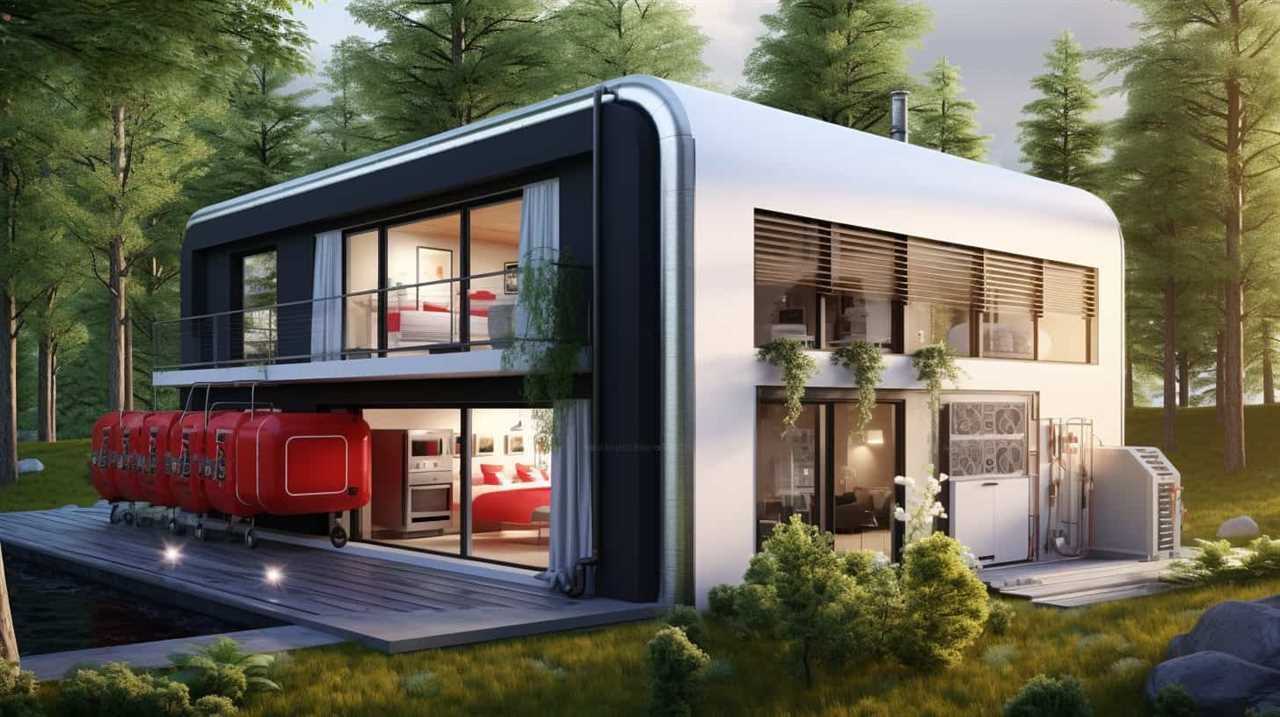
Are There Any Maintenance Tasks or Regular Servicing Requirements for Heat Pump AC Units That Can Help Optimize Their Performance and Reduce Running Costs?
Regular maintenance tasks and servicing are crucial for optimizing the performance and reducing running costs of heat pump AC units. By keeping the system clean, checking for any issues, and ensuring proper airflow, we can maximize efficiency and extend the lifespan of the unit.
How Does the Noise Level of a Heat Pump AC Compare to Other Types of Air Conditioning Systems?
When considering the noise level of a heat pump AC, it is important to compare it to other types of air conditioning systems. Additionally, energy efficiency should be taken into account for a comprehensive analysis.
Conclusion
In conclusion, understanding the factors that affect heat pump AC running costs is crucial for homeowners.
By considering energy efficiency ratings, climate impact, and analyzing usage patterns, individuals can make informed decisions to optimize their AC usage and save on costs.
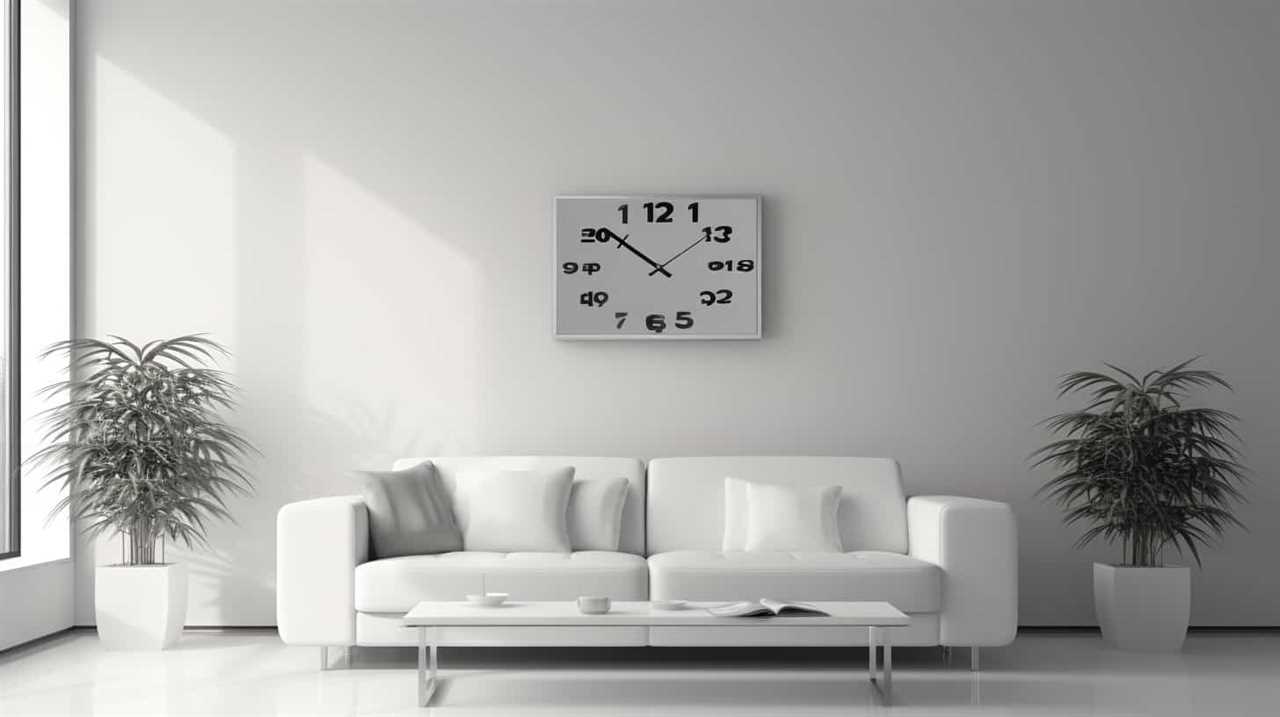
It’s important to remember that knowledge is power, and by implementing cost-saving strategies, such as regular maintenance and proper insulation, homeowners can maximize their savings while enjoying the benefits of a comfortable and efficient cooling system.
As the saying goes, ‘A penny saved is a penny earned.’
Air Conditioning
Exploring the Efficiency of Air Conditioning Heat Pumps
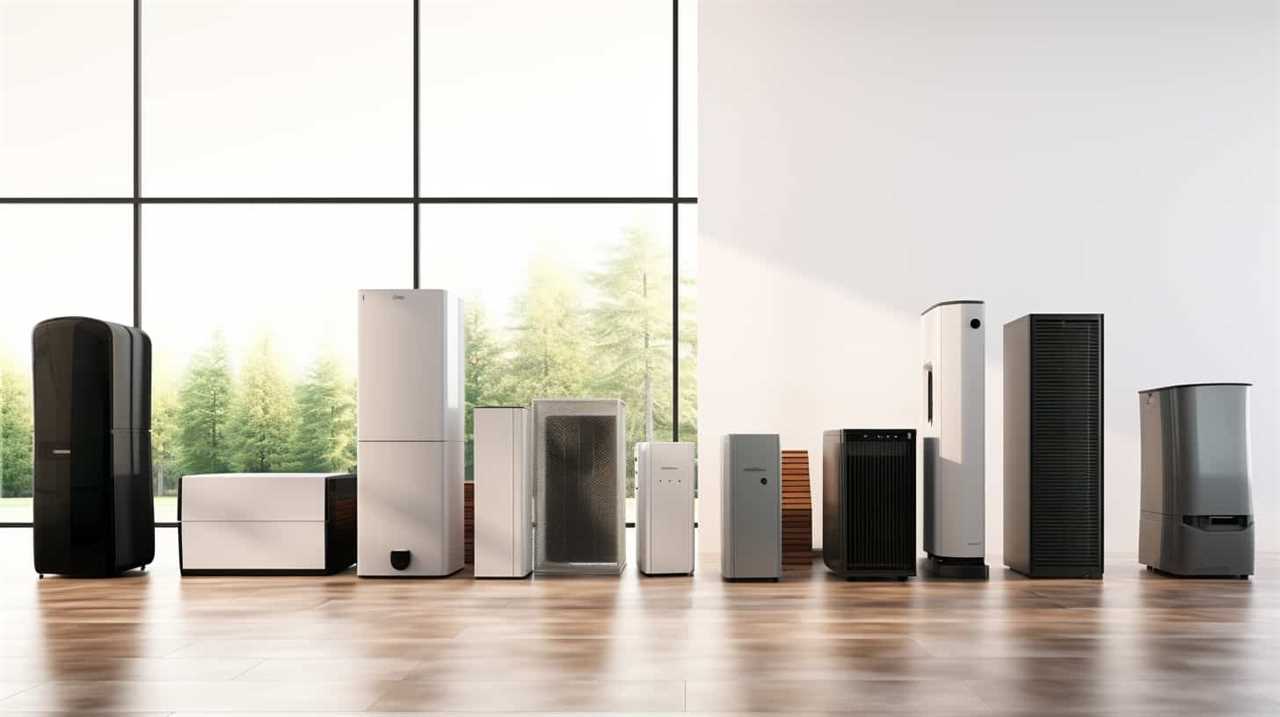
Are you aware that air conditioning heat pumps have the potential to reduce your energy bills by up to 50%?
In this article, we will explore the efficiency of these heat pumps and how they can benefit you.
We will dive into the technical details, analyzing the coefficient of performance, energy efficiency ratio, and seasonal energy efficiency ratio.
Additionally, we will provide tips to improve the efficiency of your air conditioning heat pump and compare different types available in the market.
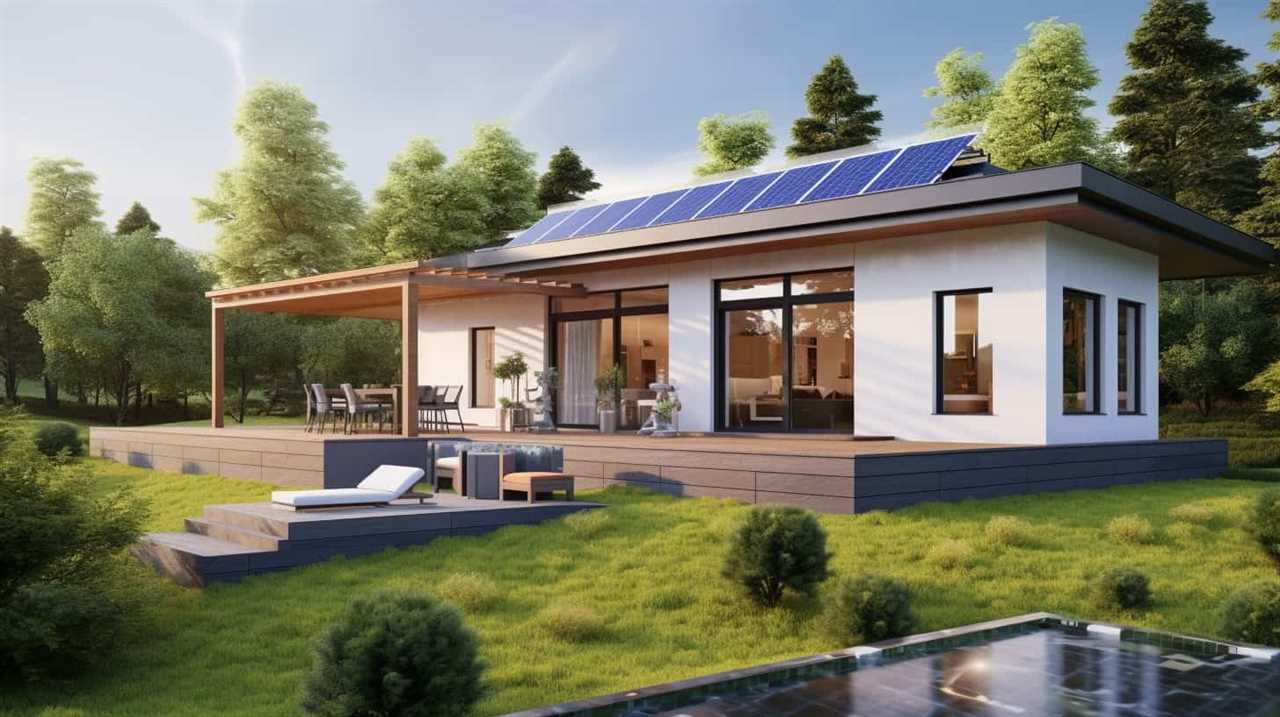
Key Takeaways
- Understanding heat transfer principles helps optimize air conditioning heat pump performance.
- Selecting heat pumps with higher COP values maximizes energy efficiency.
- Proper insulation reduces heat loss or gain, improving the efficiency of air conditioning heat pumps.
- Compliance with efficiency standards reduces energy consumption and promotes the use of energy-efficient technologies.
The Basics of Air Conditioning Heat Pump Efficiency
In this section, we’ll delve into the basics of air conditioning heat pump efficiency. Understanding heat transfer and analyzing energy consumption are crucial in ensuring the optimal performance of these systems.
Heat transfer refers to the movement of heat from one place to another, and it plays a vital role in air conditioning heat pump efficiency. By comprehending the principles of heat transfer, we can design and operate heat pumps that maximize efficiency and minimize energy consumption.
Analyzing energy consumption involves assessing the amount of energy required to achieve the desired cooling or heating effect. This analysis allows us to identify inefficiencies and implement measures to improve overall system performance.
Understanding the Coefficient of Performance (COP) in Air Conditioning Heat Pumps
Let’s delve into the concept of the Coefficient of Performance (COP) and how it relates to the efficiency of air conditioning heat pumps. The COP is a metric used to measure the efficiency of heat pump technology in air conditioning systems. It represents the ratio of heat output to the amount of energy input. In other words, it tells us how much heat energy is produced for each unit of electricity consumed.
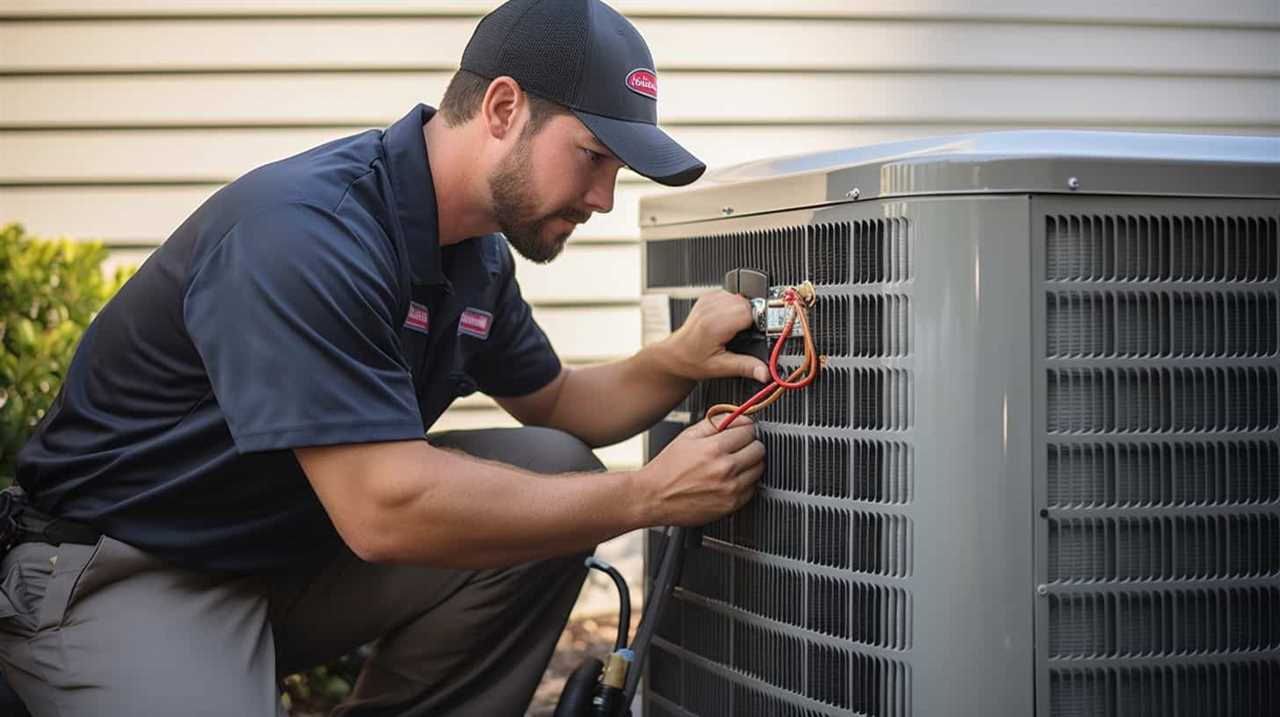
A higher COP indicates a more efficient heat pump, as it’s able to provide more heat while using less energy. Understanding the COP is crucial for implementing energy saving strategies in air conditioning systems. By selecting heat pumps with higher COP values, we can maximize energy efficiency and reduce electricity consumption.
Now that we’ve a grasp on the COP, let’s explore the factors affecting the efficiency of air conditioning heat pumps.
Factors Affecting the Efficiency of Air Conditioning Heat Pumps
One of the key factors that impact the efficiency of air conditioning heat pumps is the temperature difference between the indoor and outdoor environments. This temperature difference plays a crucial role in optimizing the performance of the heat pump. When the temperature difference is larger, the heat pump needs to work harder to transfer heat, resulting in decreased efficiency. On the other hand, a smaller temperature difference allows the heat pump to operate more efficiently.
Another factor that affects efficiency is the type and quality of insulation in the building. Proper insulation reduces heat loss or gain, enabling the heat pump to maintain desired indoor temperatures more effectively. Additionally, the size and capacity of the heat pump should be optimized for the specific space to avoid energy wastage.
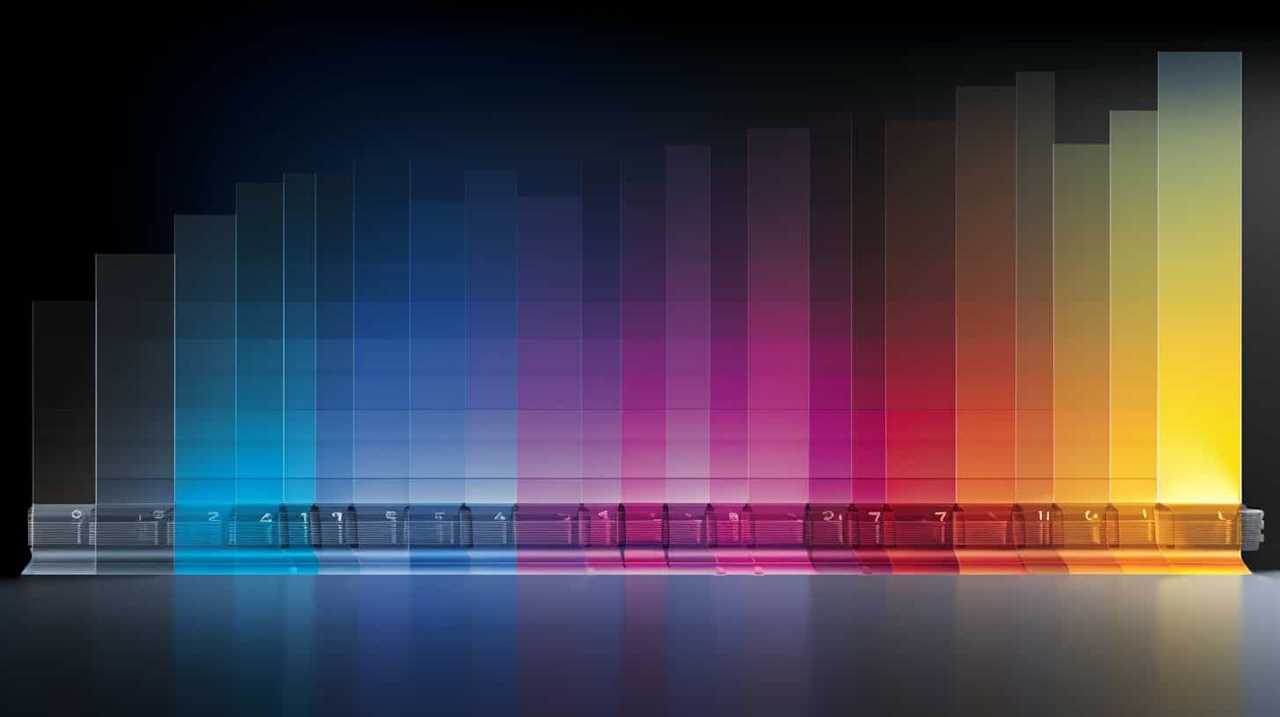
Considering these factors isn’t only important for optimizing performance but also for reducing the environmental impact of air conditioning heat pumps.
In the subsequent section, we’ll explore the energy efficiency ratio (EER) of air conditioning heat pumps.
Exploring the Energy Efficiency Ratio (EER) of Air Conditioning Heat Pumps
To further understand the efficiency of air conditioning heat pumps, we’ll explore the energy efficiency ratio (EER). The EER is a measure of the cooling capacity of an air conditioning heat pump divided by the power input required to operate it. It provides valuable information about the energy efficiency of the system and can help consumers make informed decisions when purchasing air conditioning heat pumps.
Here are three key points to consider when examining the EER:
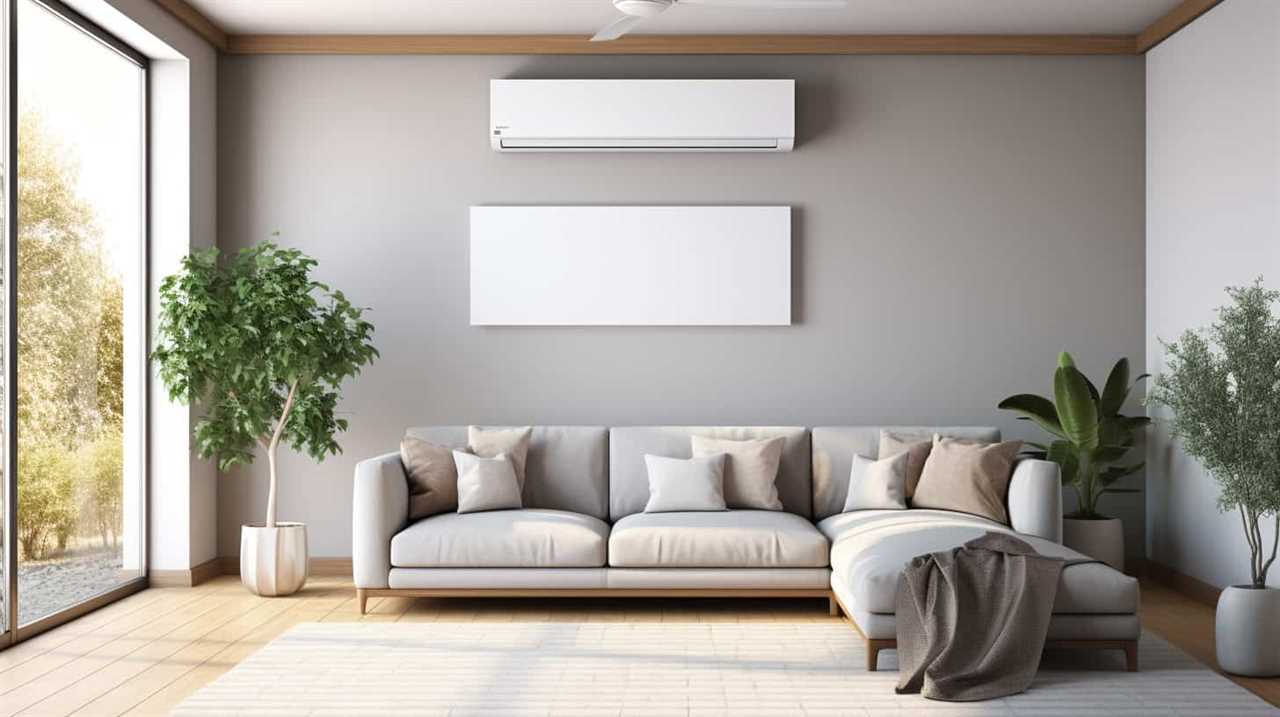
-
Improving COP: The coefficient of performance (COP) is a measure of the efficiency of a heat pump. By improving the COP, the EER can be increased, resulting in a more energy-efficient system.
-
Energy-saving technologies: Various technologies, such as variable speed compressors and energy recovery ventilators, can enhance the energy efficiency of air conditioning heat pumps, leading to higher EER ratings.
-
Proper sizing and installation: Ensuring that the heat pump is properly sized and installed can optimize its operation and maximize its EER, as an undersized or poorly installed system may work harder and consume more energy.
The Importance of Seasonal Energy Efficiency Ratio (SEER) in Air Conditioning Heat Pumps
We highly recommend considering the Seasonal Energy Efficiency Ratio (SEER) when evaluating the efficiency of air conditioning heat pumps. While the Energy Efficiency Ratio (EER) measures the cooling capacity of a unit at a specific temperature, the SEER takes into account the entire cooling season, providing a more comprehensive assessment of energy efficiency. The SEER is calculated by dividing the total cooling output of a unit by the total energy consumed over a season. A higher SEER indicates greater efficiency and lower energy costs. To maximize the SEER of air conditioning heat pumps, insulation plays a crucial role. Proper insulation minimizes heat transfer, reducing the workload on the heat pump and improving overall efficiency. Investing in good insulation can significantly increase the SEER and save energy and money in the long run.
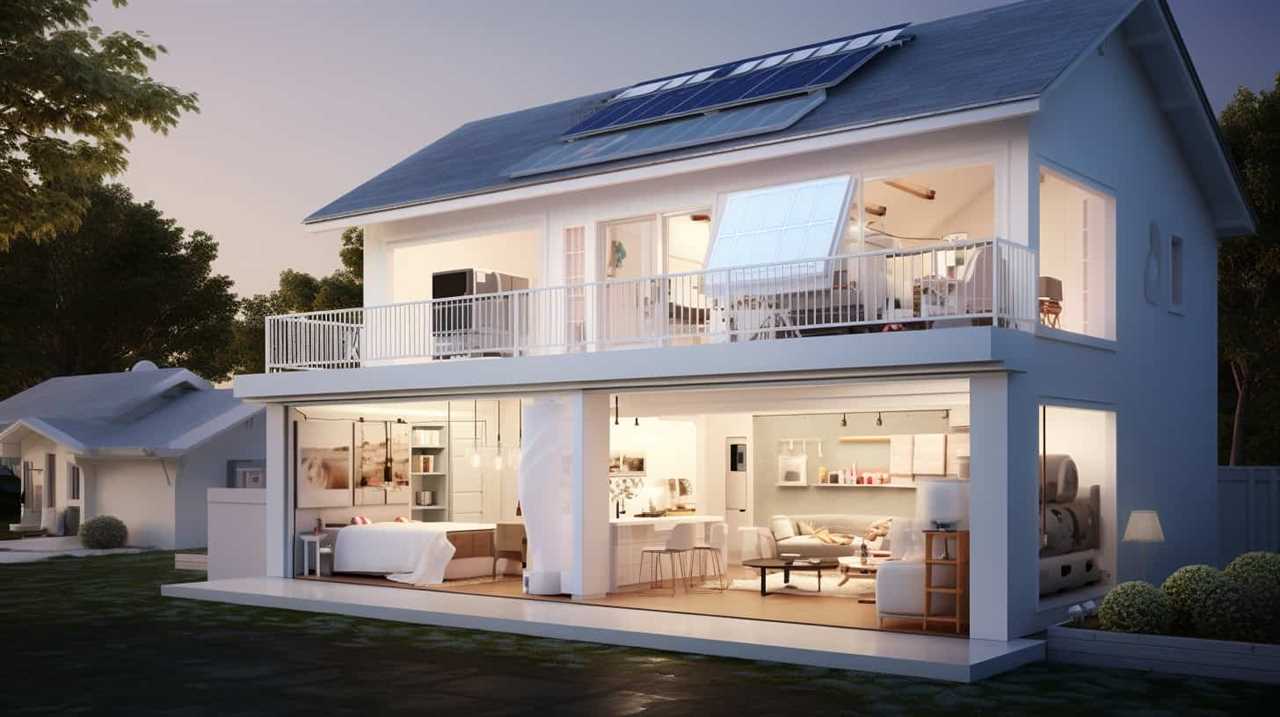
| SEER Rating | Energy Efficiency |
|---|---|
| 13-14 | Standard |
| 15-17 | High Efficiency |
| 18+ | Premium |
Heat Pump Efficiency Standards and Regulations for Air Conditioning
When discussing the efficiency of air conditioning heat pumps, it’s crucial to examine the industry’s compliance with heat pump efficiency standards and regulations.
These standards and regulations play a significant role in ensuring that air conditioning systems operate at optimal efficiency levels, which ultimately impacts energy consumption.
Industry Compliance With Regulations
Ensuring industry compliance with heat pump efficiency standards and regulations for air conditioning is essential for maximizing energy efficiency and reducing environmental impact. Compliance with these regulations helps to promote the use of energy-efficient technologies, reduce greenhouse gas emissions, and conserve natural resources.
Here are three key areas of industry compliance:
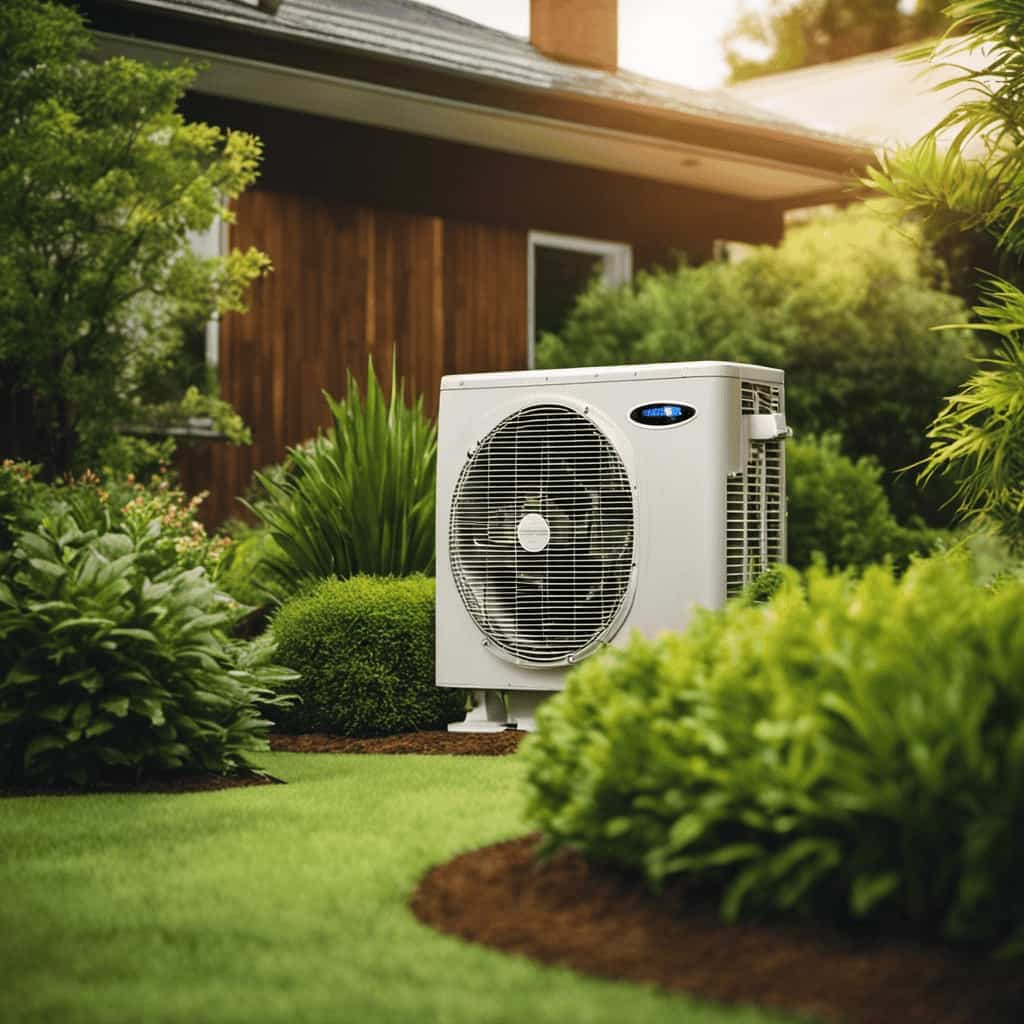
-
Adoption of energy-efficient technologies: Industry trends show a growing focus on developing and implementing energy-efficient air conditioning systems. Compliance with regulations encourages the use of advanced heat pump technologies that optimize energy consumption while maintaining comfort levels.
-
Proper installation and maintenance: Compliance with regulations requires adherence to proper installation and maintenance practices. This ensures that heat pumps operate at their maximum efficiency, reducing energy waste and minimizing environmental impact.
-
Monitoring and reporting: Compliance also involves regular monitoring and reporting of energy usage and efficiency levels. This helps identify areas for improvement, allowing for timely adjustments and optimization of energy consumption.
Impact on Energy Consumption
Compliance with heat pump efficiency standards and regulations for air conditioning directly impacts energy consumption. By implementing these standards, energy saving techniques can be employed to reduce the amount of electricity required for cooling. This not only benefits the environment but also helps consumers save on energy costs. One way to achieve energy savings is by using alternative cooling options, such as evaporative coolers or geothermal heat pumps, which have been proven to be more efficient than traditional air conditioning systems. To illustrate the impact of compliance on energy consumption, the table below compares the energy usage of a heat pump that meets efficiency standards versus one that does not.
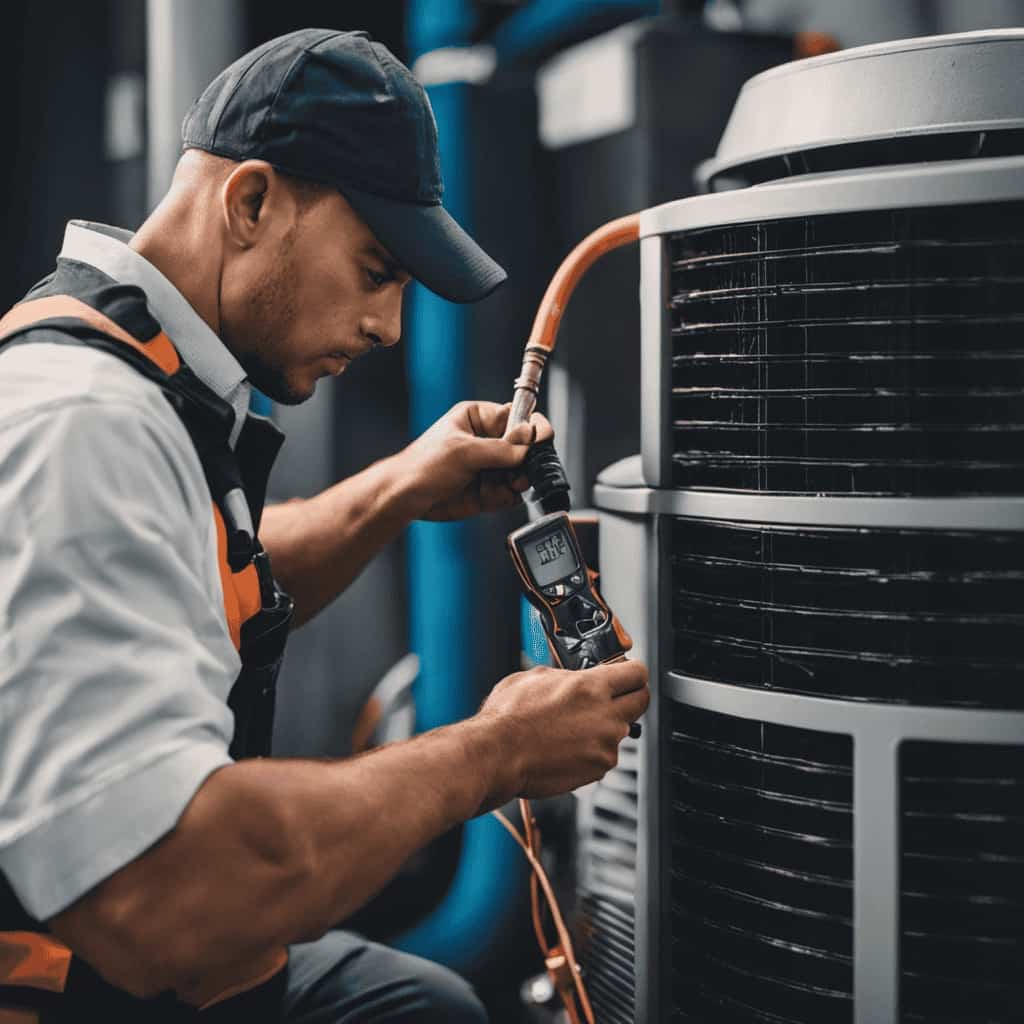
| Heat Pump Efficiency | Energy Consumption (kWh) |
|---|---|
| Meets Standards | 1200 |
| Does Not Meet Standards | 1800 |
As seen in the table, compliance with efficiency standards can result in significant energy savings. In the next section, we will discuss tips for improving the efficiency of air conditioning heat pumps, further exploring the various techniques and strategies to reduce energy consumption.
Tips for Improving the Efficiency of Air Conditioning Heat Pumps
To maximize the efficiency of our air conditioning heat pumps, we should regularly clean and replace the air filters. This simple maintenance task ensures that the system can operate at its peak performance by preventing dust and debris from clogging the filters and reducing airflow.
In addition to improving maintenance, optimizing the settings on our air conditioning heat pumps can also help enhance their efficiency. Here are three tips to consider:
-
Set the thermostat to a higher temperature during the summer months to reduce the workload on the heat pump and save energy.
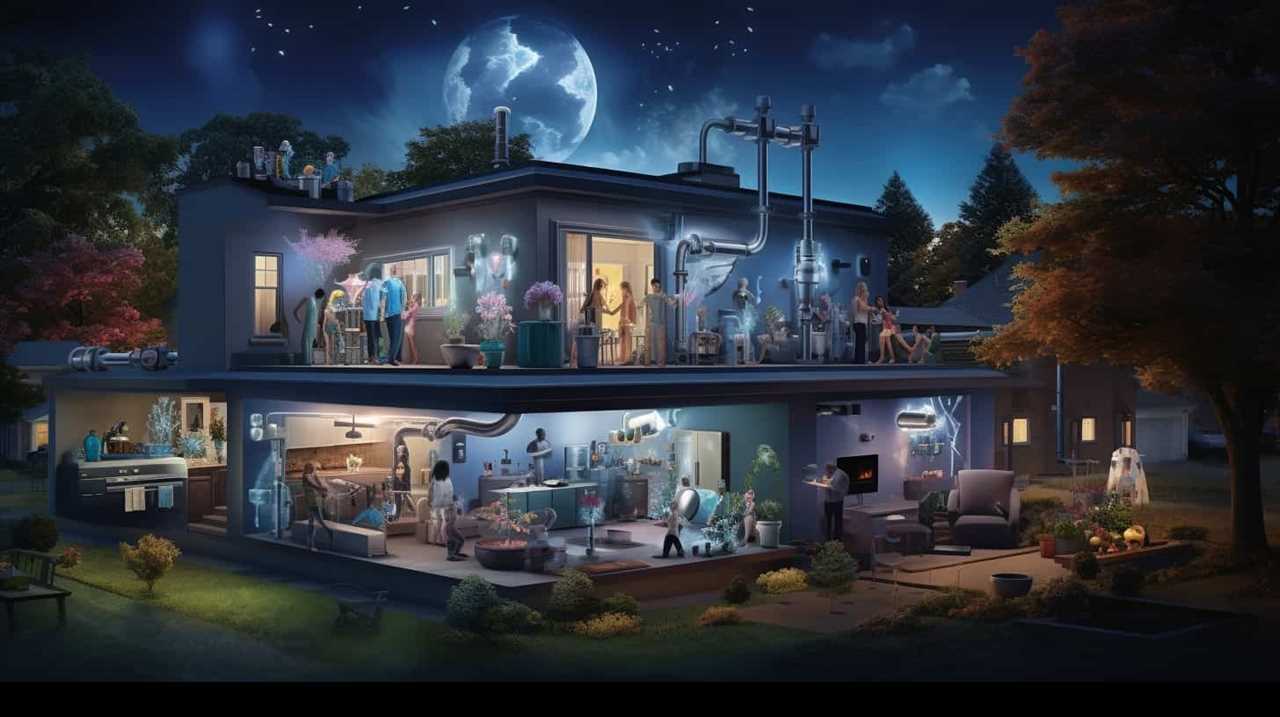
-
Use programmable thermostats to automatically adjust the temperature based on your schedule, allowing for more efficient cooling when you need it and energy savings when you don’t.
-
Keep the outdoor unit clear of obstructions such as leaves, vegetation, or debris to ensure proper airflow and prevent strain on the system.
Comparing the Efficiency of Different Types of Air Conditioning Heat Pumps
When comparing the efficiency of different types of air conditioning heat pumps, we should consider factors such as energy consumption, SEER ratings, and operating costs. Energy consumption refers to the amount of electricity used by the heat pump to cool or heat the air in your home. The higher the energy consumption, the more you will pay for electricity. SEER ratings, or Seasonal Energy Efficiency Ratio, provide a measure of how efficiently the heat pump operates over an entire cooling season. Higher SEER ratings indicate greater efficiency. Operating costs are influenced by both energy consumption and SEER ratings. To better understand the efficiency of different air conditioning heat pump types, let’s compare their energy consumption, SEER ratings, and estimated annual operating costs in the table below:
| Heat Pump Type | Energy Consumption (kWh) | SEER Rating | Annual Operating Cost ($) |
|---|---|---|---|
| Type A | 1200 | 16 | $800 |
| Type B | 1500 | 14 | $920 |
| Type C | 1000 | 18 | $720 |
Frequently Asked Questions
How Much Does It Cost to Install an Air Conditioning Heat Pump?
Installing an air conditioning heat pump involves various cost factors, such as the size of the unit, complexity of the installation, and any necessary upgrades. Considering energy efficiency can help optimize long-term savings and environmental impact.
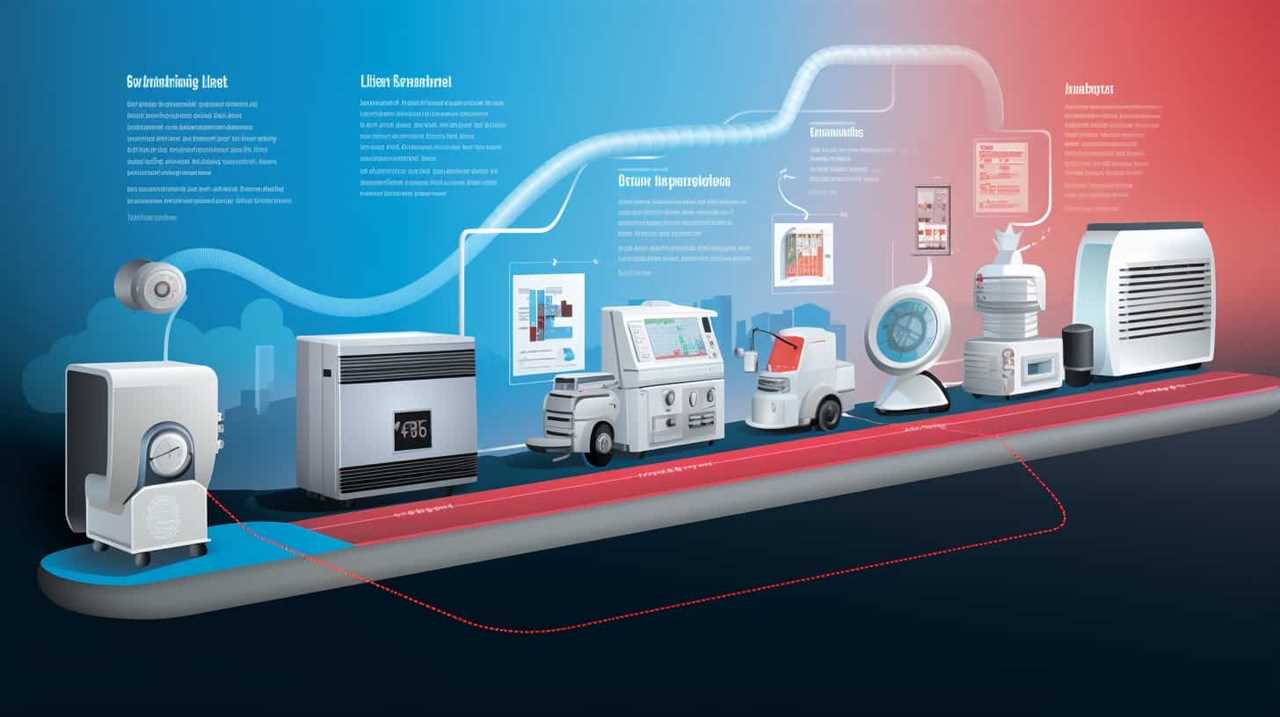
Can an Air Conditioning Heat Pump Be Used for Both Heating and Cooling?
Yes, an air conditioning heat pump can be used for both heating and cooling. It offers efficiency benefits by using less energy compared to traditional heating and cooling systems.
Are Air Conditioning Heat Pumps Environmentally Friendly?
Air conditioning heat pumps are indeed environmentally friendly. Their energy efficiency helps reduce carbon emissions, and they have a minimal impact on the ozone layer. These factors make them a sustainable choice for cooling and heating needs.
What Maintenance Is Required for Air Conditioning Heat Pumps?
Maintenance requirements for air conditioning heat pumps include regular filter cleaning, lubricating moving parts, and checking refrigerant levels. Troubleshooting tips involve inspecting electrical connections, ensuring proper airflow, and addressing any unusual noises or performance issues promptly.
Can an Air Conditioning Heat Pump Be Used in Extremely Cold Climates?
An air conditioning heat pump’s efficiency in extreme cold and performance in low temperatures depend on various factors. We consider factors such as the system’s design, insulation, and supplemental heating to ensure optimal performance in challenging climates.
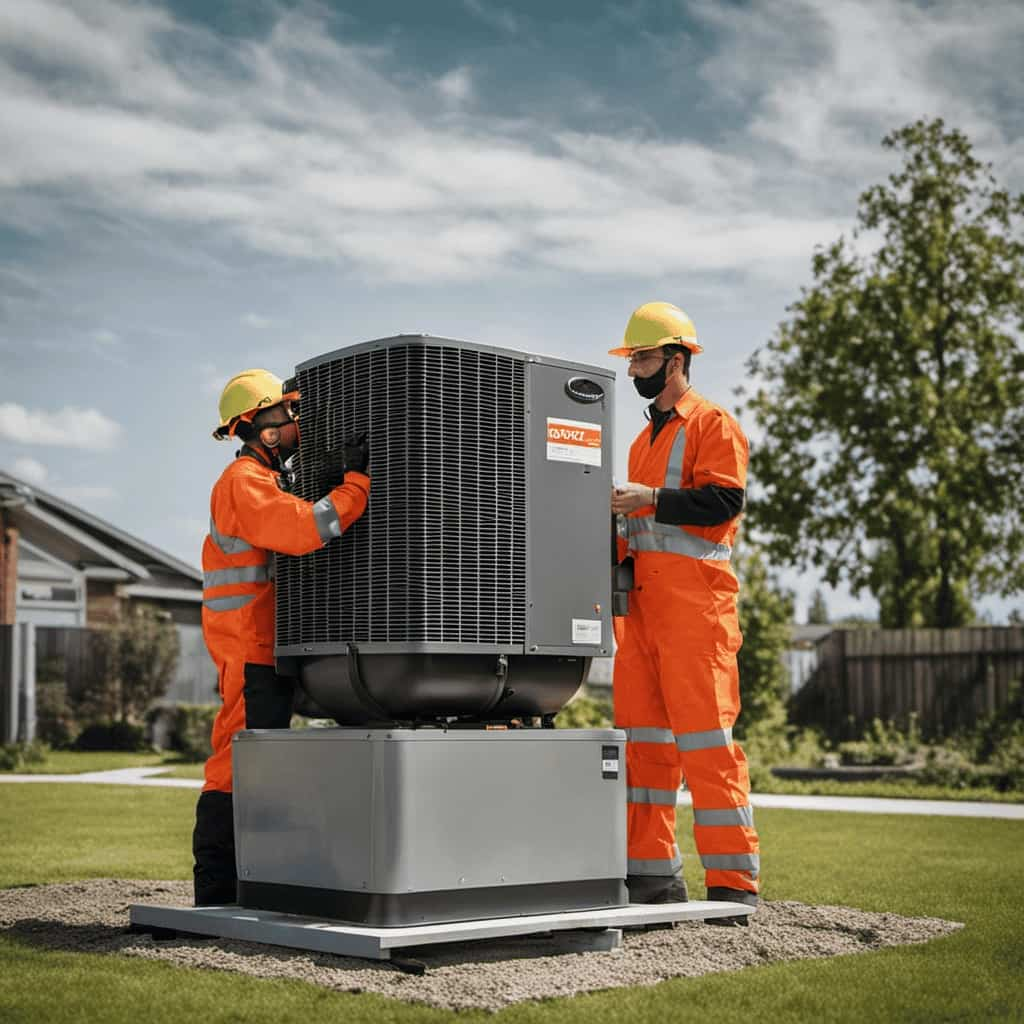
Conclusion
In conclusion, understanding the efficiency of air conditioning heat pumps is crucial for optimizing energy usage and reducing costs.
By considering factors such as the coefficient of performance (COP), energy efficiency ratio (EER), and seasonal energy efficiency ratio (SEER), we can make informed decisions when selecting and operating heat pumps.
Following regulations and implementing energy-saving tips will further enhance their efficiency.
As the saying goes, ‘A stitch in time saves nine,’ taking proactive measures now will result in long-term energy savings and environmental benefits.

Air Conditioning
Essential Checklist: Air Conditioning Heat Pump Installation Costs
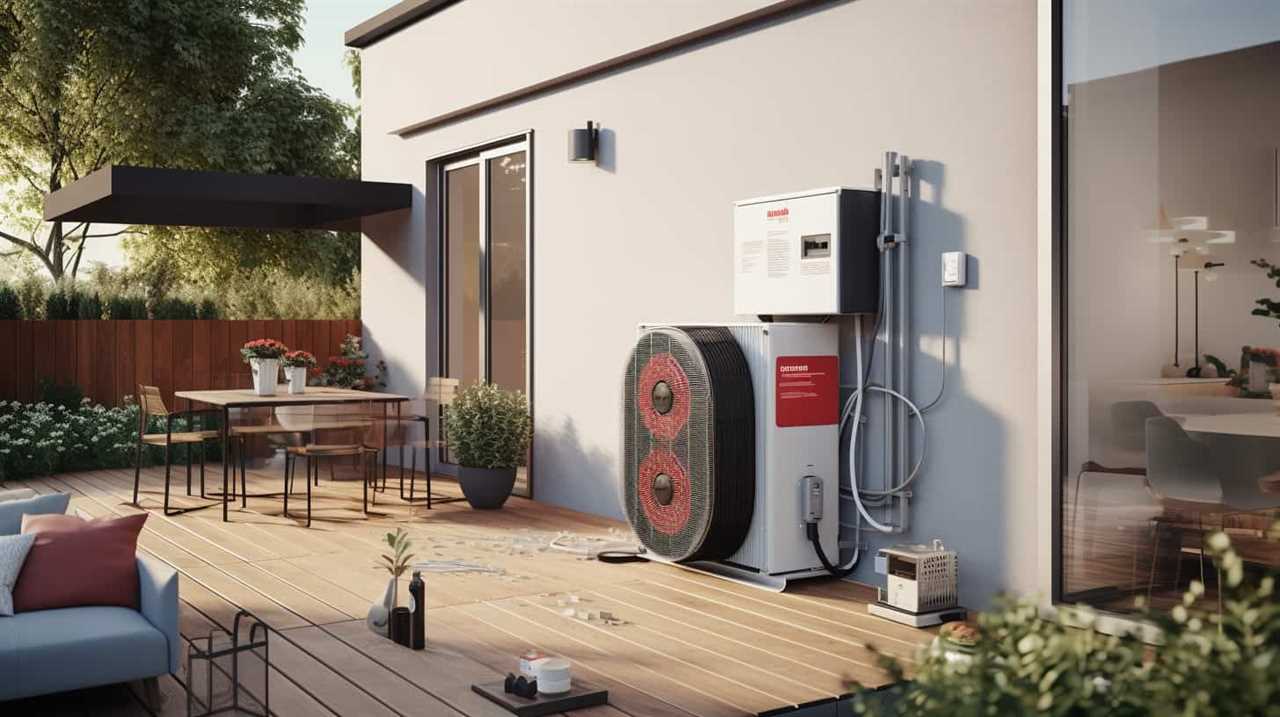
Are you prepared to explore the realm of air conditioning heat pump installation expenses? Hang on, because we have an indispensable checklist that will amaze you!
We’ll break down the factors that affect installation costs, give you an average cost estimate, and even uncover hidden expenses you need to consider.
Plus, we’ll share tips on how to save money and explore financing options.
Get ready to become an expert on air conditioning heat pump installation costs!
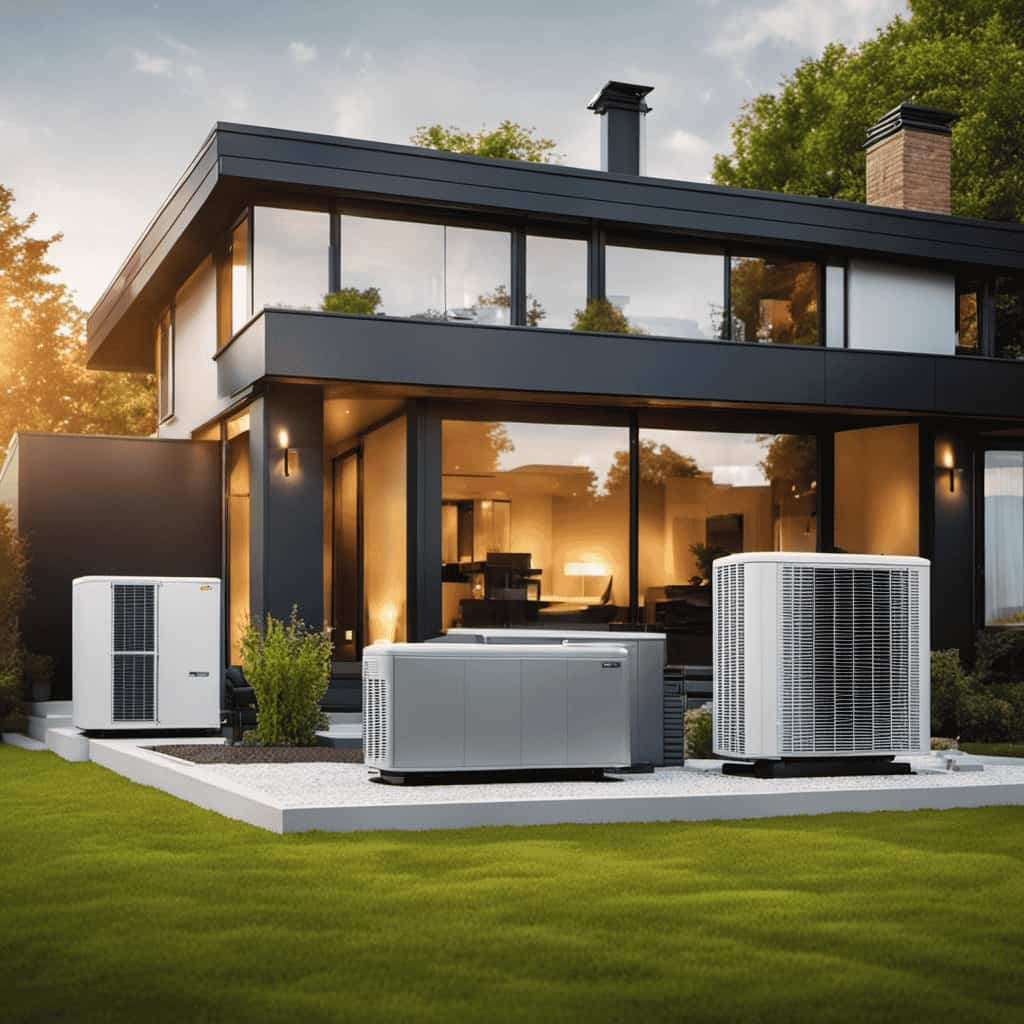
Key Takeaways
- Regional cost variations and factors such as labor costs, permit fees, and material prices can greatly impact the overall cost of air conditioning heat pump installation.
- The size, type, and complexity of the heat pump, as well as regional price variations, are key factors that determine the average cost of installation.
- Implementing cost-saving installation tips such as properly sizing the unit, ensuring proper insulation, sealing air leaks, and using energy-saving techniques can help minimize expenses without compromising quality.
- Hidden costs to consider for heat pump installation include electrical upgrades, ductwork modifications, permits and inspections, as well as ongoing maintenance and potential repairs in the future.
Factors Affecting Air Conditioning Heat Pump Installation Costs
We’ll discuss the main factors that impact air conditioning heat pump installation costs.
One factor that can greatly influence the overall cost is regional cost variations. Different areas may have varying labor costs, permit fees, and material prices, which can all affect the total installation cost. For example, urban areas tend to have higher labor costs compared to rural areas. Additionally, permit fees and regulations can differ from one region to another.
Another factor to consider is energy efficiency incentives. Many utility companies and government programs offer incentives and rebates for installing energy-efficient air conditioning heat pump systems. These incentives can help offset the upfront installation costs and make the overall project more affordable.
Now, let’s move on to discussing the average cost of air conditioning heat pump installation.
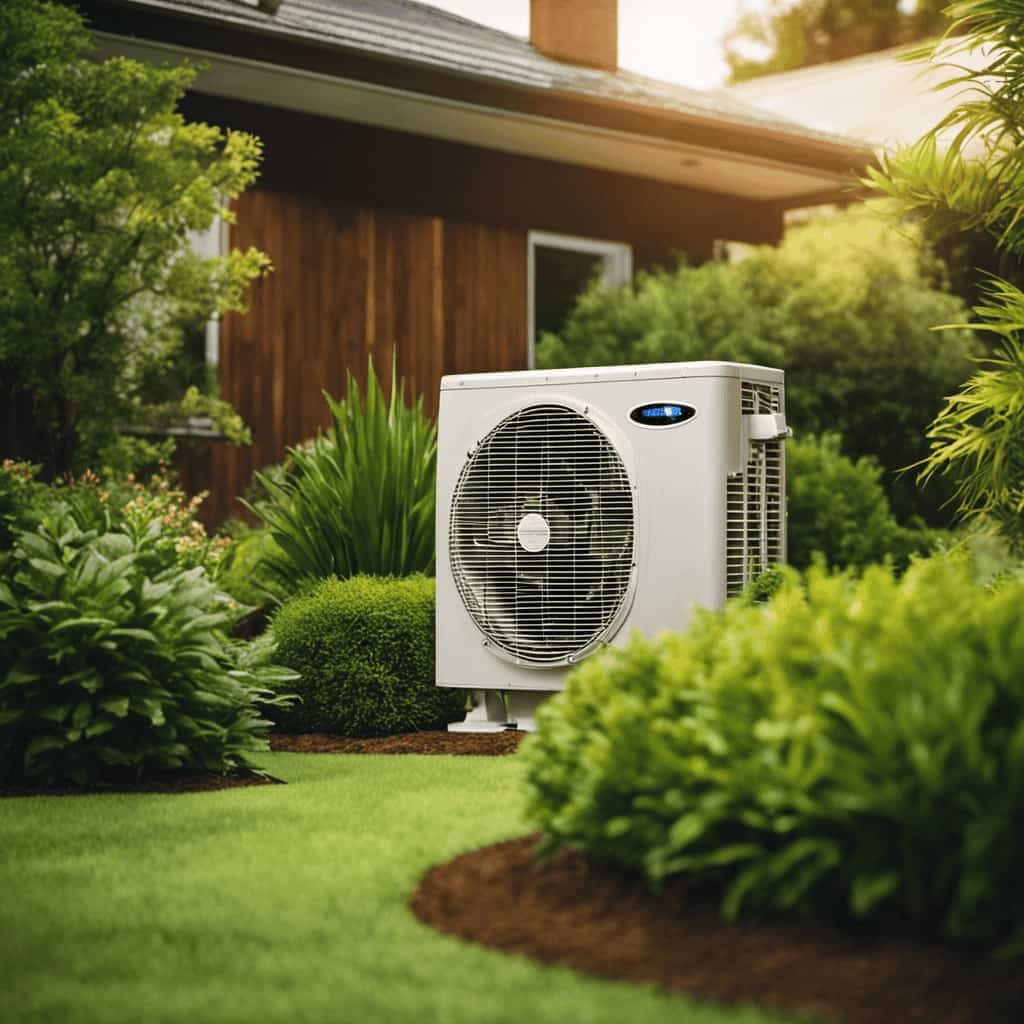
Average Cost of Air Conditioning Heat Pump Installation
When considering the average cost of air conditioning heat pump installation, there are several factors that come into play. These factors can include the size and type of the heat pump, the complexity of the installation, and any additional materials or equipment needed.
It’s important to note that regional price variations can also impact the overall cost, so it’s crucial to research and compare prices in your specific area.
Additionally, there are cost-saving installation tips that can help minimize expenses without compromising on quality.
Factors Affecting Installation Costs
Our research has determined that there are five key factors that can affect the average cost of air conditioning heat pump installation. These factors include the complexity of the installation, the size of the unit, the location of the installation, the need for additional equipment, and the impact of weather on the installation timeline.

To better understand these factors, let’s take a closer look at each one:
| Factors Affecting Installation Costs | Description |
|---|---|
| Complexity of Installation | The more complex the installation, such as retrofitting an existing system or dealing with limited space, the higher the cost. |
| Size of the Unit | Larger units require more time and labor to install, resulting in higher costs. |
| Location of Installation | Difficult access or remote locations can increase installation costs due to transportation and logistics challenges. |
| Need for Additional Equipment | If additional equipment, such as ductwork or electrical upgrades, is required, it will add to the overall installation costs. |
| Impact of Weather on Installation Timeline | Inclement weather can delay the installation process, resulting in additional labor costs and potential rescheduling fees. |
Considering these factors can help homeowners better understand the potential costs associated with air conditioning heat pump installation.
Regional Price Variations
Based on our findings, the average cost of air conditioning heat pump installation can vary significantly across different regions. Regional pricing factors and the impact of location play a crucial role in determining the cost.
Here are four key factors that contribute to the regional price variations:

-
Cost of living: Areas with a higher cost of living tend to have higher installation costs due to increased labor and material expenses.
-
Climate: Regions with extreme weather conditions may require more complex installations, leading to higher costs.
-
Market competition: Areas with a higher number of HVAC contractors may have more competitive pricing, lowering the overall installation costs.
-
Local regulations: Different regions have varying permit requirements and regulations, which can affect the cost of installation.
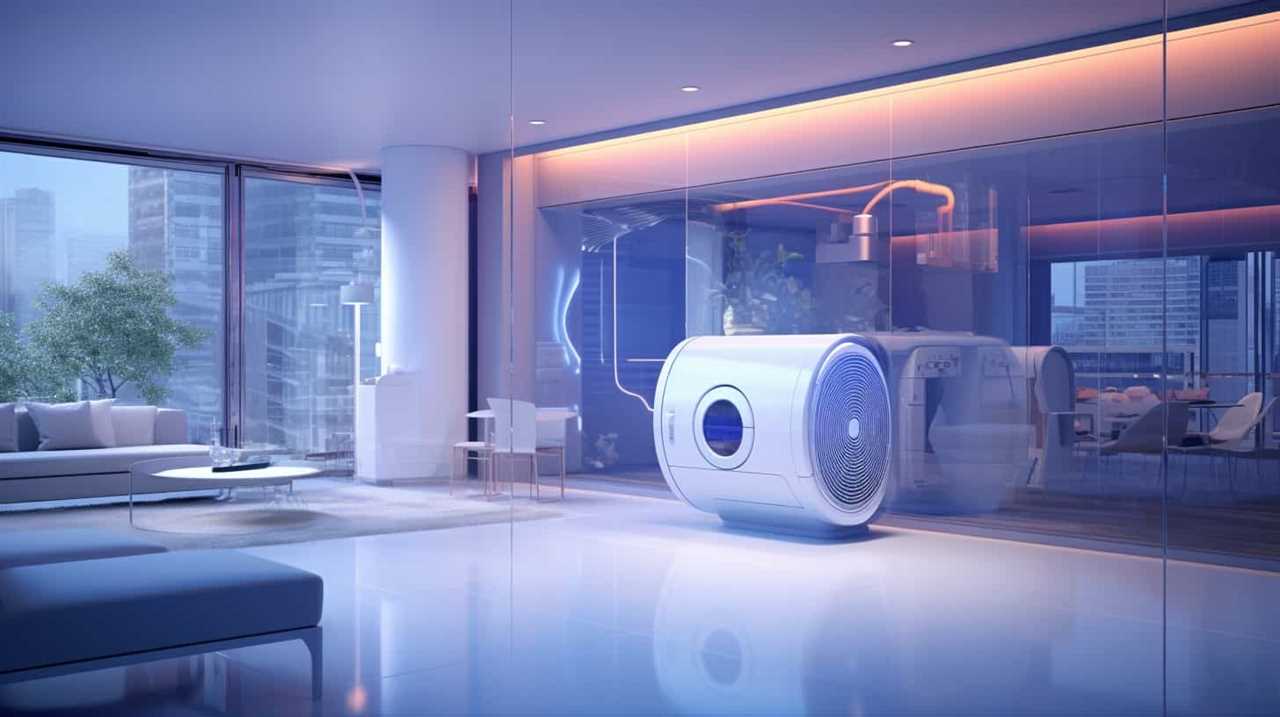
Understanding these regional pricing factors is essential for homeowners to budget effectively and make informed decisions when it comes to air conditioning heat pump installations.
Cost-Saving Installation Tips
Here are some cost-saving installation tips that can help lower the average cost of air conditioning heat pump installation.
-
Properly size the unit based on the square footage and insulation of your home. Oversized units not only cost more upfront, but they also consume more energy and are less efficient.
-
Ensure proper insulation in your home to retain cool air and reduce the workload on the heat pump.

-
Seal any air leaks and properly seal and insulate air ducts to improve system efficiency.
By implementing these cost-effective methods and energy-saving techniques, you can minimize the overall installation cost while maximizing the performance of your air conditioning heat pump.
Now, let’s move on to the next section where we’ll break down the cost of materials and labor involved in air conditioning heat pump installation.
Cost Breakdown: Materials and Labor
The cost breakdown for materials and labor includes the cost of the heat pump itself, as well as the cost of any additional materials needed for installation. When considering the materials and labor costs for heat pump installation, it’s important to keep in mind that opting for a DIY installation can save you money. However, it’s crucial to have the necessary skills and knowledge to ensure a successful installation.
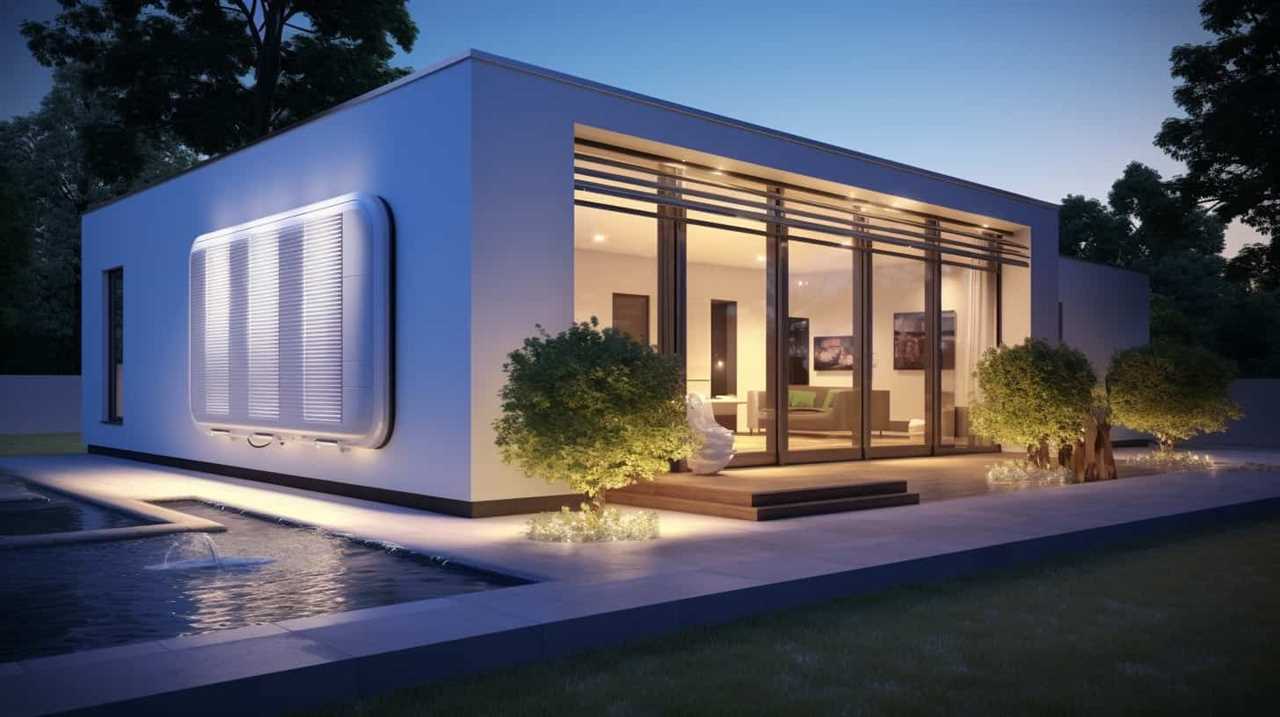
Here is a breakdown of the costs involved:
-
Heat pump cost: This includes the price of the unit itself, which varies depending on the size, brand, and features.
-
Additional materials: These may include refrigerant, copper tubing, electrical wiring, and ductwork, among others.
-
Labor cost: Hiring a professional HVAC technician to install the heat pump will incur labor charges, which can vary based on location and complexity of the installation.
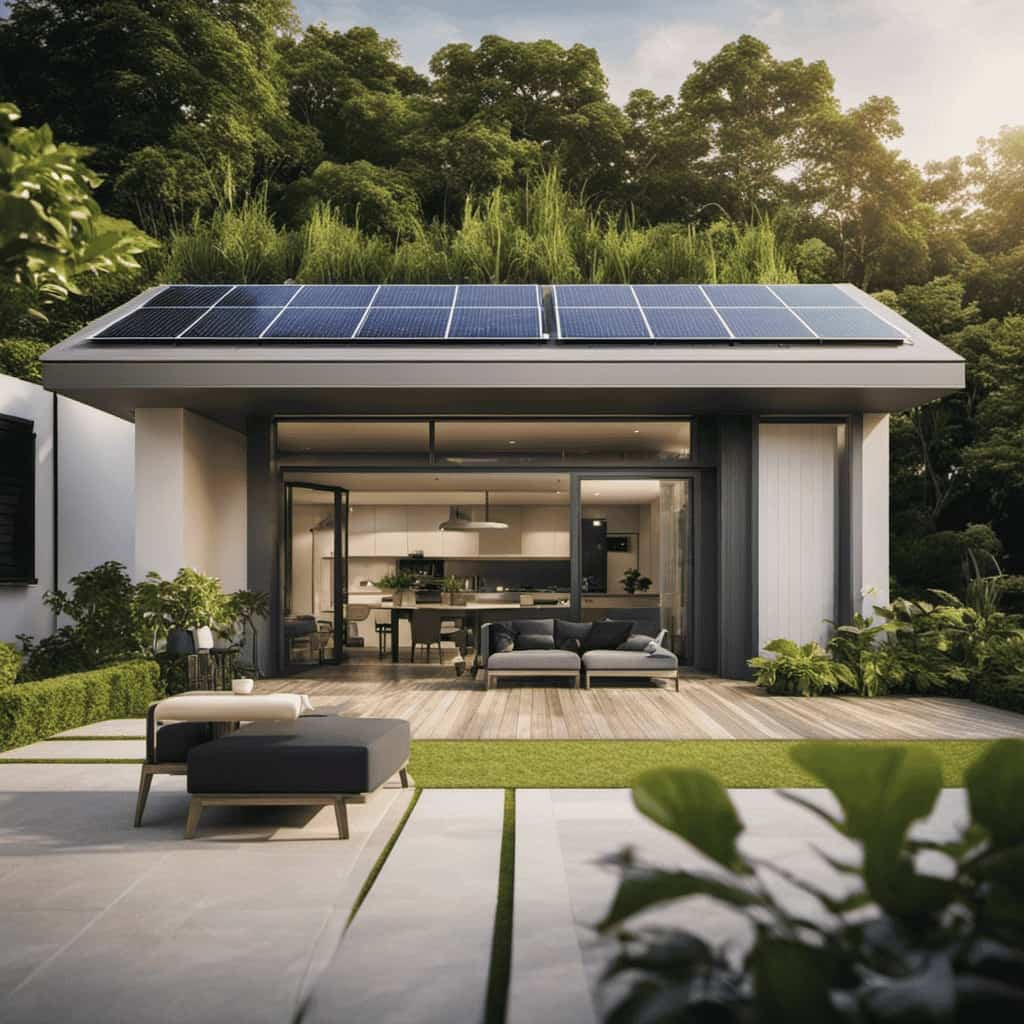
-
Permit fees: Some areas require permits for heat pump installation, so it’s important to factor in these additional costs.
Considering these costs, it’s essential to be aware of any hidden expenses that may arise during the installation process.
Hidden Costs to Consider for Heat Pump Installation
What are some hidden costs to consider for heat pump installation? While the upfront cost of a heat pump installation may seem straightforward, there are several hidden costs and additional expenses that homeowners should be aware of. These costs can significantly impact the overall budget and should be taken into account when planning for the installation. To help you understand these hidden costs better, here is a table outlining some of the common additional expenses that may arise during heat pump installation:
| Hidden Costs | Description |
|---|---|
| Electrical Upgrades | Upgrading electrical systems to meet the heat pump’s demand. |
| Ductwork Modifications | Modifying or replacing existing ductwork for optimal airflow. |
| Permits and Inspections | Obtaining necessary permits and inspections for installation. |
| Maintenance and Repairs | Ongoing maintenance and potential repairs in the future. |
Tips for Saving Money on Air Conditioning Heat Pump Installation
When it comes to saving money on air conditioning heat pump installation, there are a few key factors to consider.
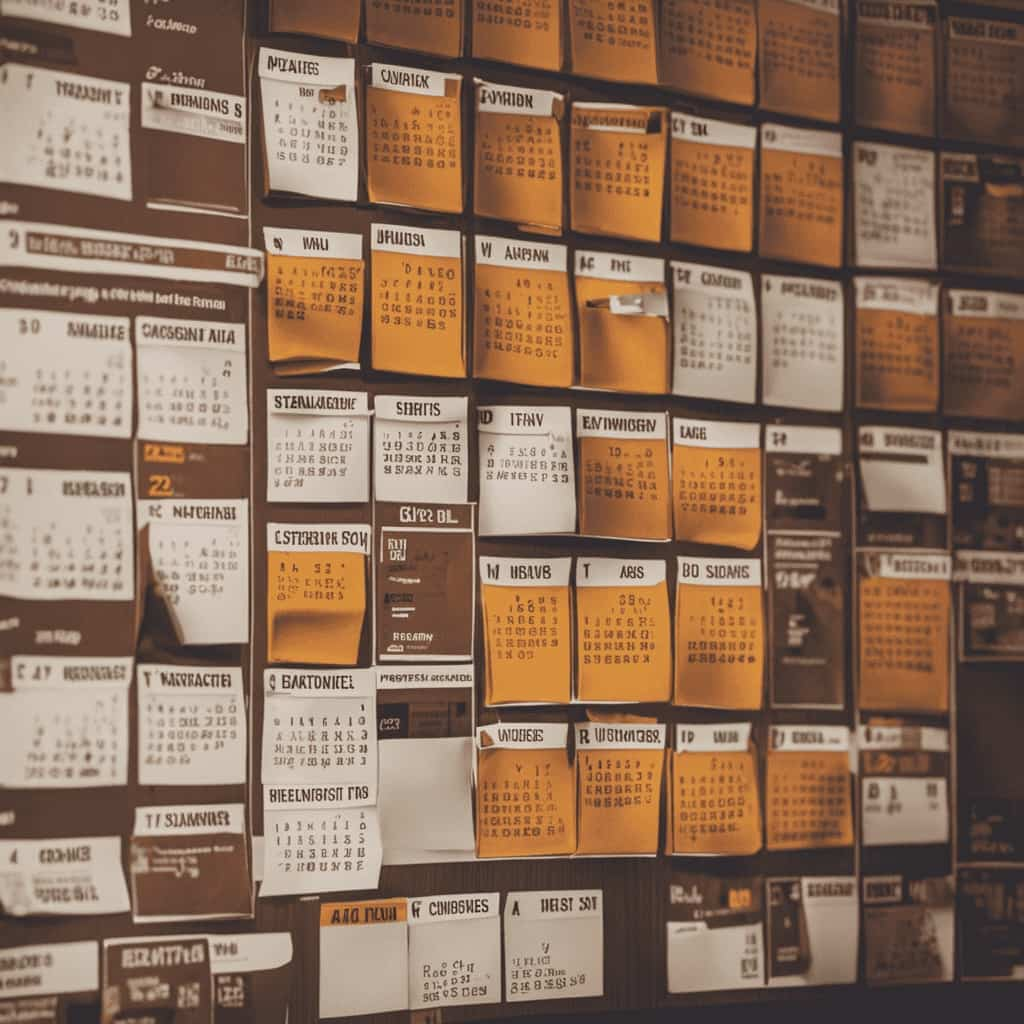
First, deciding whether to tackle the installation yourself or hire a professional can make a big difference in cost.
Additionally, opting for energy-efficient options and understanding the maintenance and warranties associated with your heat pump can also help you save money in the long run.
DIY Vs. Professional
We can save money on air conditioning heat pump installation by considering the pros and cons of DIY versus professional services. While opting for a DIY approach may seem tempting to some, it comes with its own set of challenges.
Here are four key factors to consider when deciding between hiring professionals or taking on the installation yourself:
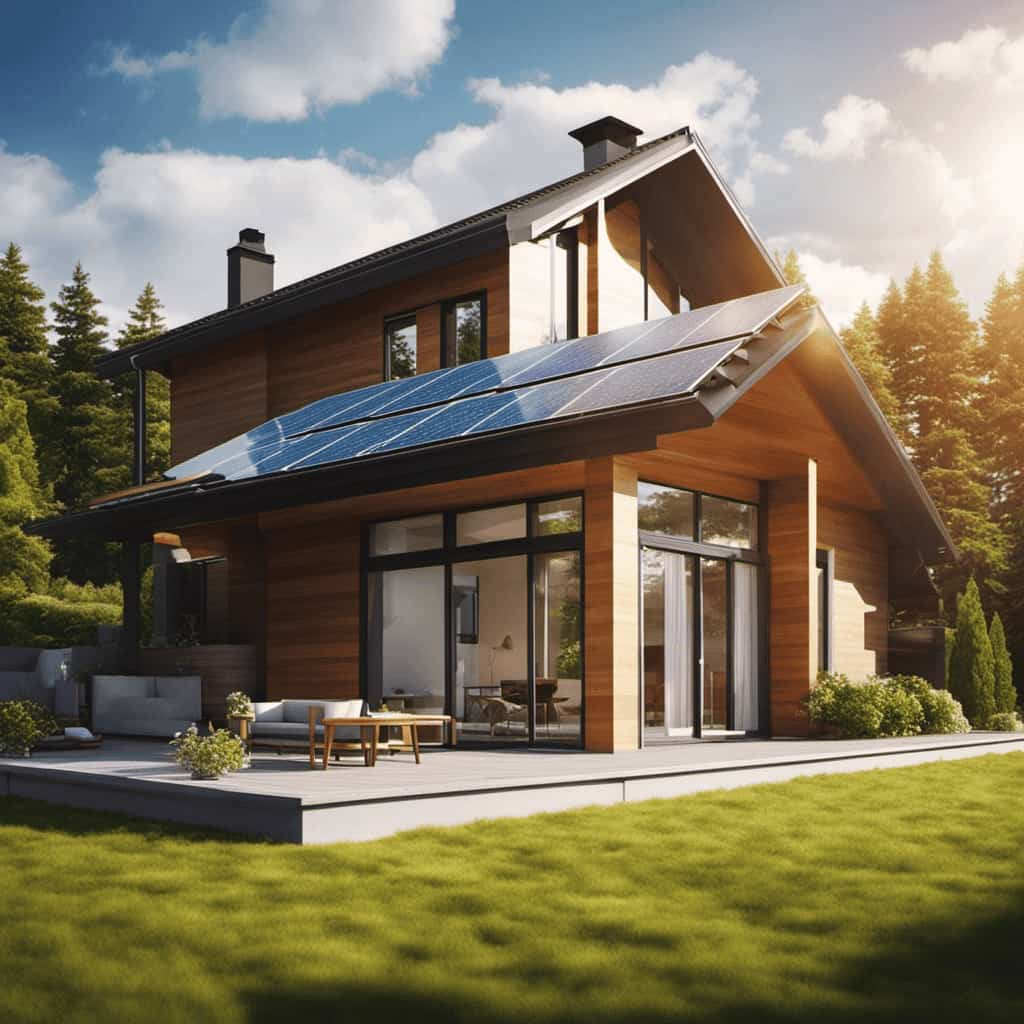
-
Expertise: Professionals have the knowledge and experience to ensure a proper installation, minimizing the risk of costly mistakes.
-
Time and Effort: Installing a heat pump can be a complex and time-consuming task. Hiring professionals allows you to focus on other priorities while they handle the installation efficiently.
-
Safety: Working with electrical components and refrigerants can be dangerous. Professionals are trained to handle these hazards safely, reducing the risk of accidents or injuries.
-
Warranty and Support: Professional installation often comes with warranties and the assurance of ongoing support, giving you peace of mind and protection for your investment.
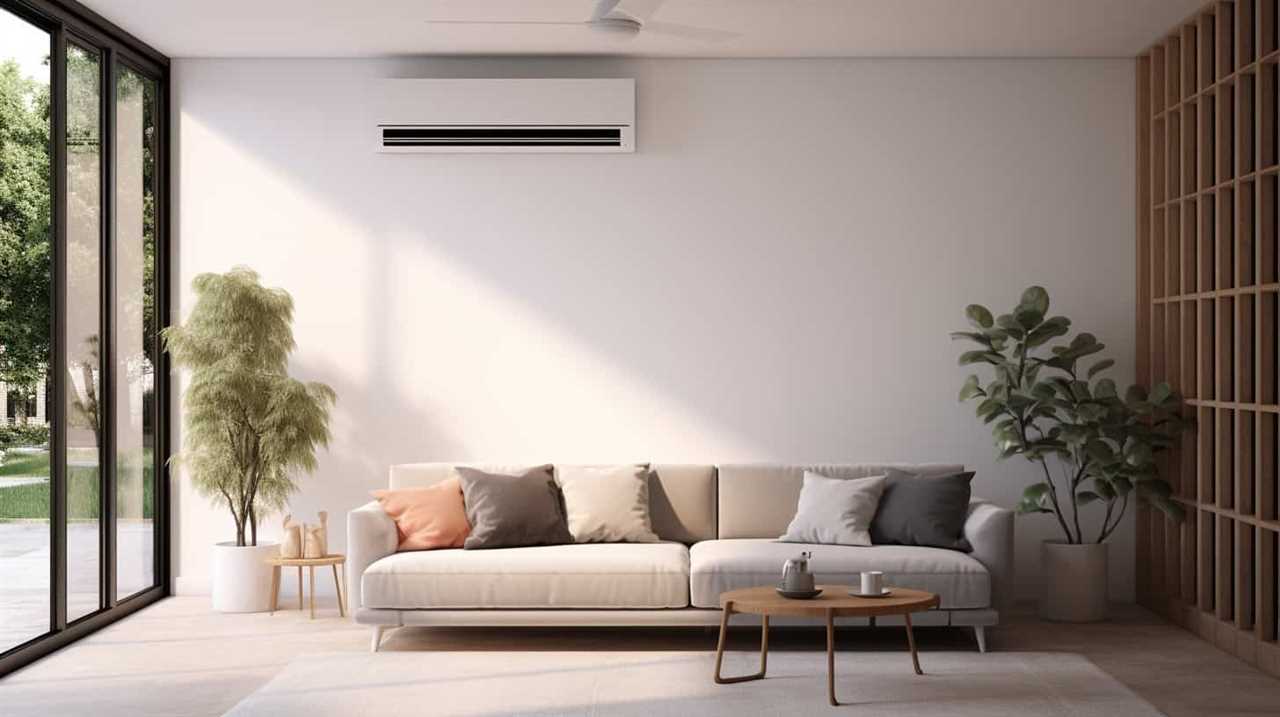
Consider these factors carefully to make an informed decision that aligns with your budget and priorities.
Energy-Efficient Options
To save money on air conditioning heat pump installation, we can explore energy-efficient options that can help reduce overall costs. Investing in energy-efficient options not only helps the environment but also saves on energy bills in the long run. Here are some cost-saving techniques to consider:
| Energy-Efficient Options | Benefits |
|---|---|
| Programmable Thermostats | Allows you to set temperature schedules, saving energy when you’re not at home. |
| High SEER Rating | Higher Seasonal Energy Efficiency Ratio (SEER) rating means greater energy efficiency and lower operating costs. |
| Proper Insulation | Insulating your home properly helps maintain desired temperatures and reduces energy waste. |
Maintenance and Warranties
Let’s explore the importance of regular maintenance and warranties to maximize the longevity and efficiency of our air conditioning heat pump installation, saving us money in the long run. Taking care of our system and ensuring warranty coverage won’t only extend its lifespan but also help us avoid costly repairs.
Here are four key points to consider:
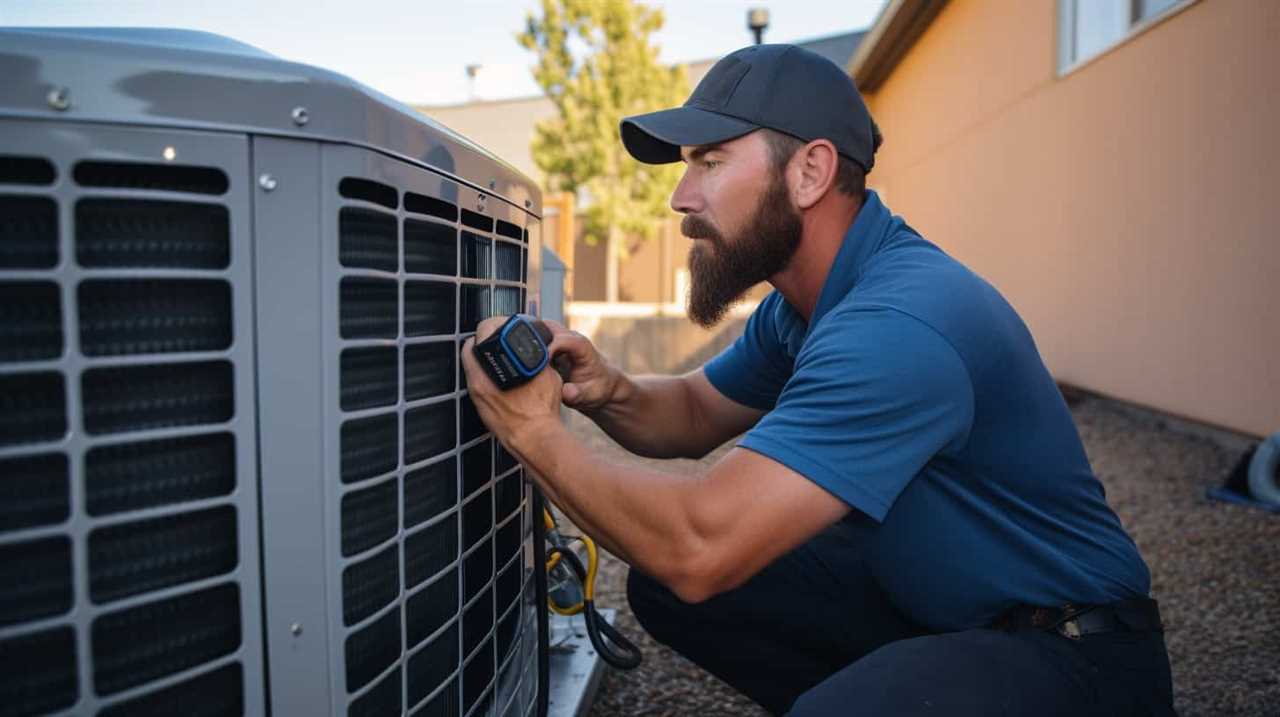
-
Follow a maintenance schedule: Regularly cleaning or replacing air filters, checking refrigerant levels, and inspecting ductwork can prevent breakdowns and ensure optimal performance.
-
Invest in professional tune-ups: Hiring a qualified technician to perform routine maintenance and inspections will identify any potential issues early on and keep our system running smoothly.
-
Read and understand warranty coverage: Familiarize yourself with what’s and isn’t covered under the warranty to avoid unexpected expenses. Some warranties may require regular maintenance as a condition for coverage.
-
Keep records of maintenance and repairs: Maintaining a detailed record of maintenance and repairs will help us prove that we’ve followed the warranty requirements and ensure smoother warranty claims.
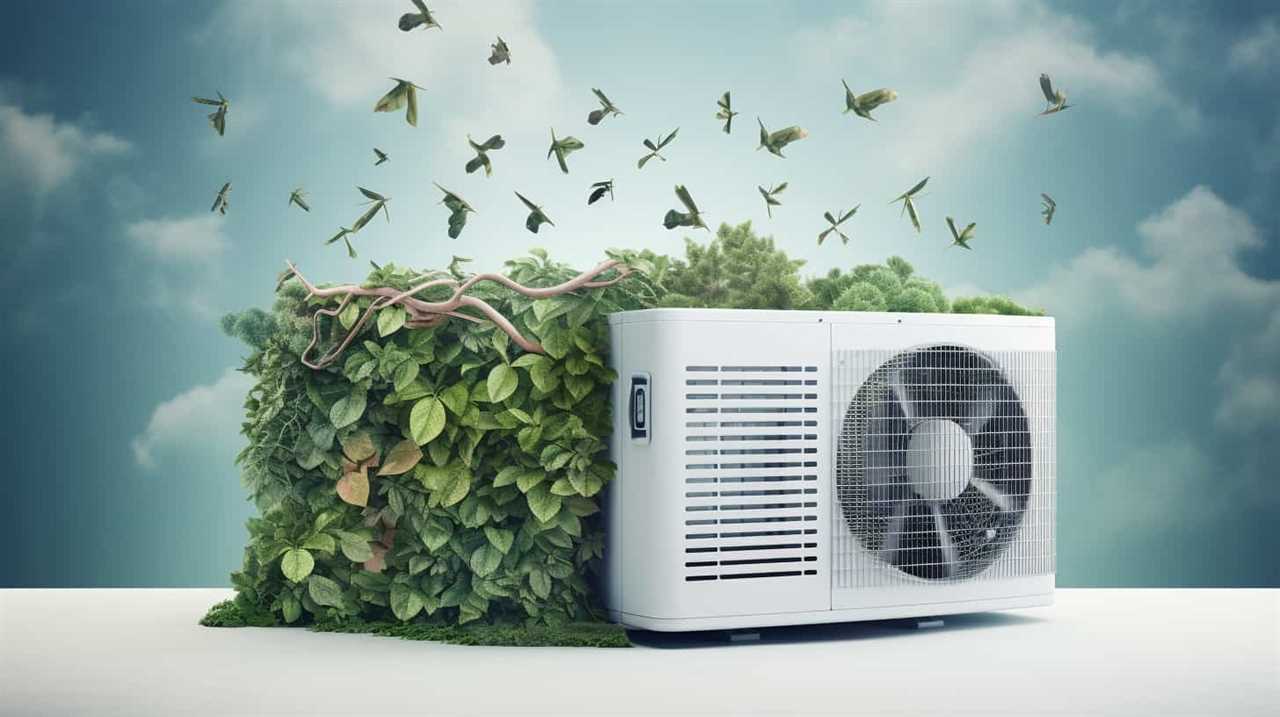
By prioritizing regular maintenance and understanding warranty coverage, we can save money in the long term by preventing costly repairs and maximizing the lifespan of our air conditioning heat pump installation.
Now, let’s explore financing options for heat pump installation.
Financing Options for Heat Pump Installation
Our preferred financing options for heat pump installation include low-interest loans and flexible payment plans.
When considering heat pump financing options, it’s important to weigh the upfront costs against the long-term savings that can be achieved through energy efficiency. Heat pump installation savings can be significant, as these systems are more energy-efficient than traditional heating and cooling methods.
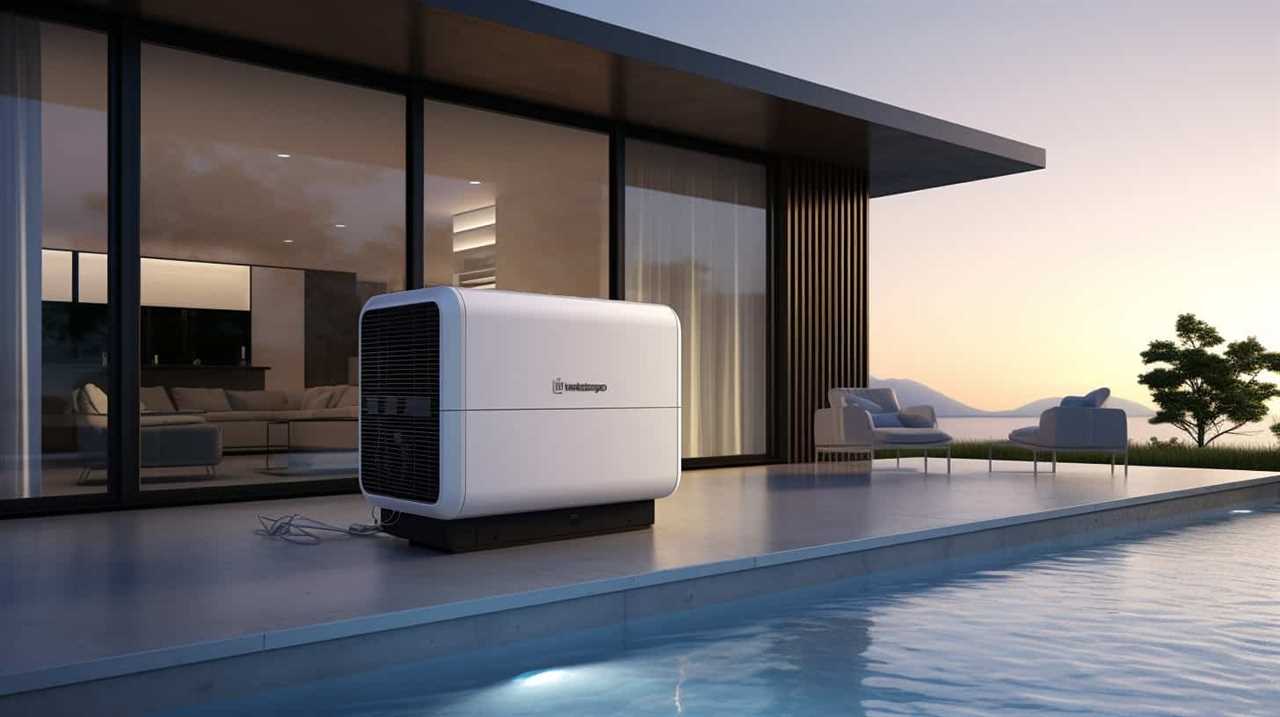
Low-interest loans provide a practical solution for homeowners who want to minimize their upfront expenses while benefiting from reduced energy bills.
Flexible payment plans offer the convenience of spreading out the cost over time, making heat pump installation more accessible and budget-friendly.
These financing options allow homeowners to invest in a heat pump system without compromising their financial stability, ensuring comfort and efficiency while saving money in the long run.
Hiring a Professional Vs. DIY Heat Pump Installation
We recommend hiring a professional for heat pump installation rather than attempting a DIY approach. While DIY projects can be rewarding, installing a heat pump requires technical expertise and knowledge that professionals possess. Here are some reasons why professional installation is the better choice:
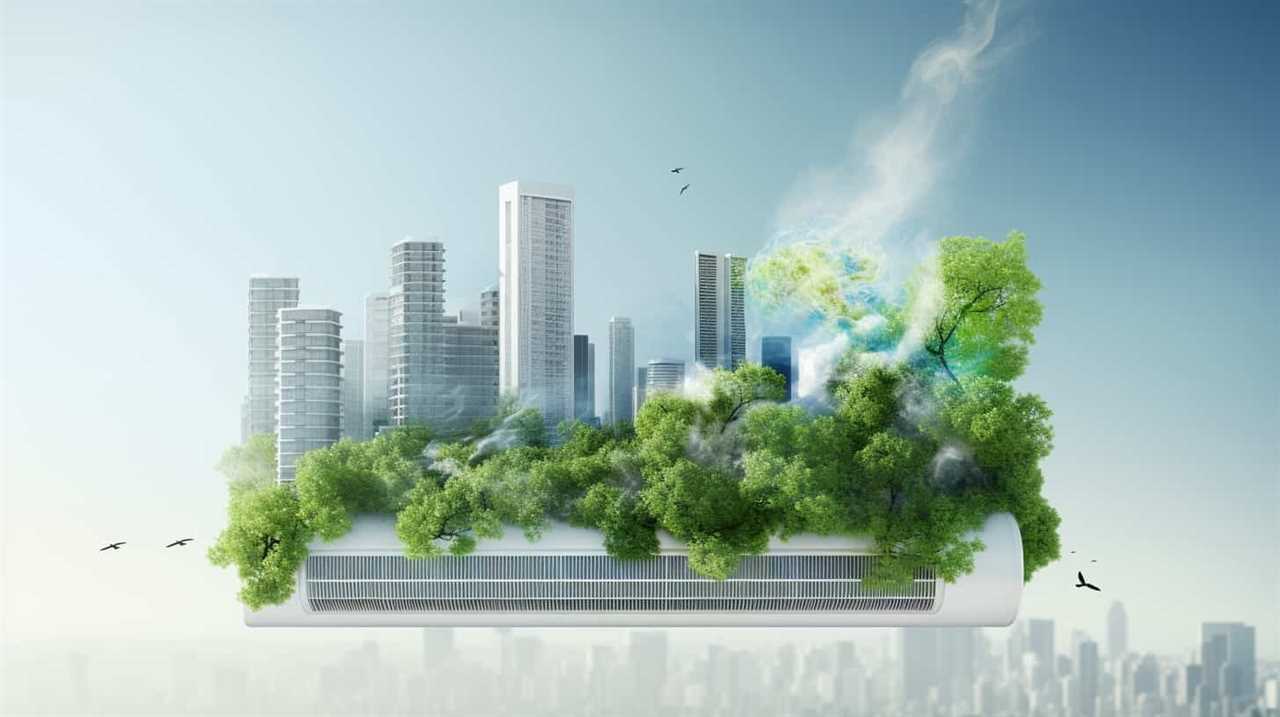
-
Expertise: Professionals have the necessary training and experience to handle complex installations, ensuring that the heat pump operates efficiently and effectively.
-
Safety: Heat pump installation involves working with electrical wiring and refrigerant, which can be dangerous if not handled correctly. Professionals are trained to prioritize safety.
-
Time and Effort: Installing a heat pump can be time-consuming and challenging. By hiring a professional, you can save yourself the hassle and focus on other important tasks.
-
Cost Saving Tips: Professionals can provide cost-saving advice, such as recommending energy-efficient models and optimizing the system’s performance.
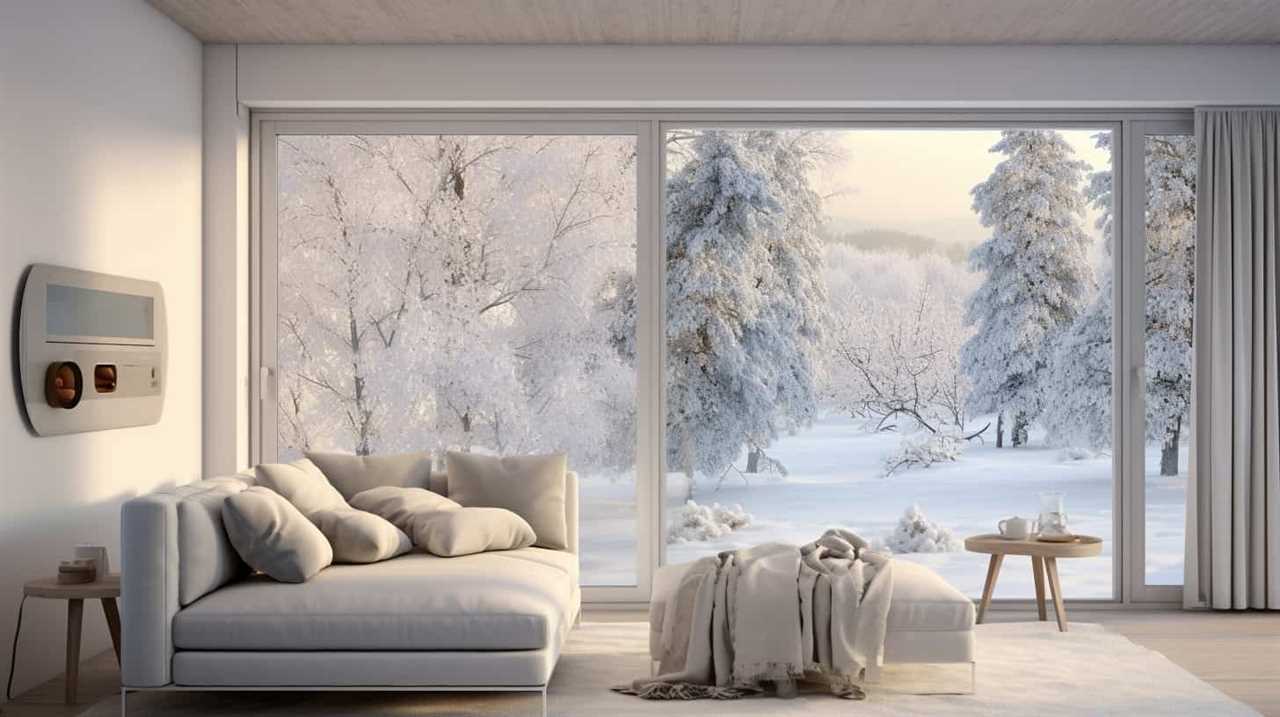
By opting for professional installation, you can ensure a smooth and reliable heat pump setup.
Now, let’s explore the next topic of warranty and maintenance costs for air conditioning heat pumps.
Warranty and Maintenance Costs for Air Conditioning Heat Pumps
Now, let’s discuss the warranty and maintenance costs for air conditioning heat pumps.
When it comes to warranty coverage, it’s important to carefully review the terms and conditions provided by the manufacturer. Most heat pumps come with a standard warranty that typically covers parts and labor for a certain period of time, often ranging from 5 to 10 years. However, it’s advisable to consider purchasing an extended warranty for additional coverage and peace of mind.
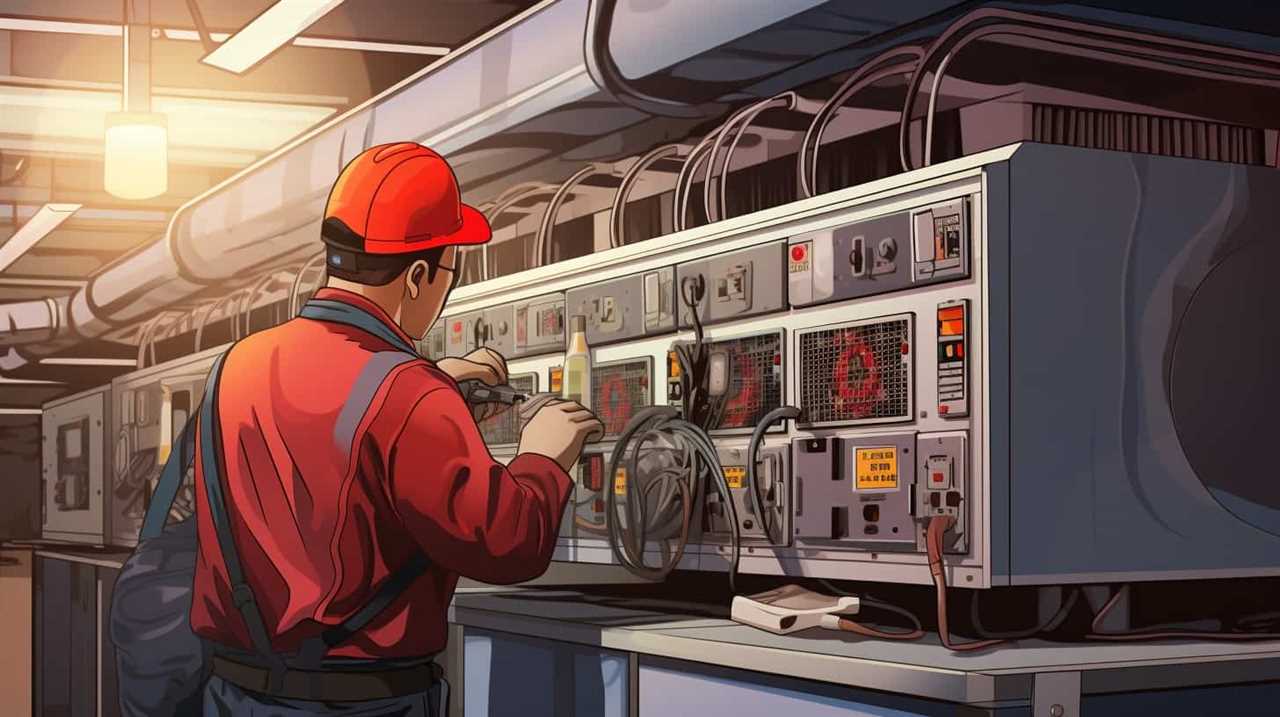
In terms of maintenance services, regular upkeep is essential to ensure optimal performance and longevity of your air conditioning heat pump. It’s recommended to schedule annual maintenance visits with a professional HVAC technician. These visits typically include cleaning and inspecting the system, checking refrigerant levels, lubricating moving parts, and making any necessary adjustments.
The cost of these maintenance services can vary depending on factors such as the size of the heat pump and the complexity of the system. Investing in regular maintenance can help prevent costly repairs and ensure the efficient operation of your air conditioning heat pump.
Comparing Installation Costs: Heat Pump Vs. Traditional Air Conditioning Systems
When comparing installation costs, it’s important to consider the differences between heat pumps and traditional air conditioning systems. Here are four key points to keep in mind:
-
Energy Efficiency: Heat pumps are known for their high energy efficiency compared to traditional air conditioning systems. They can provide both heating and cooling, which means they can save you money on your energy bills all year round.
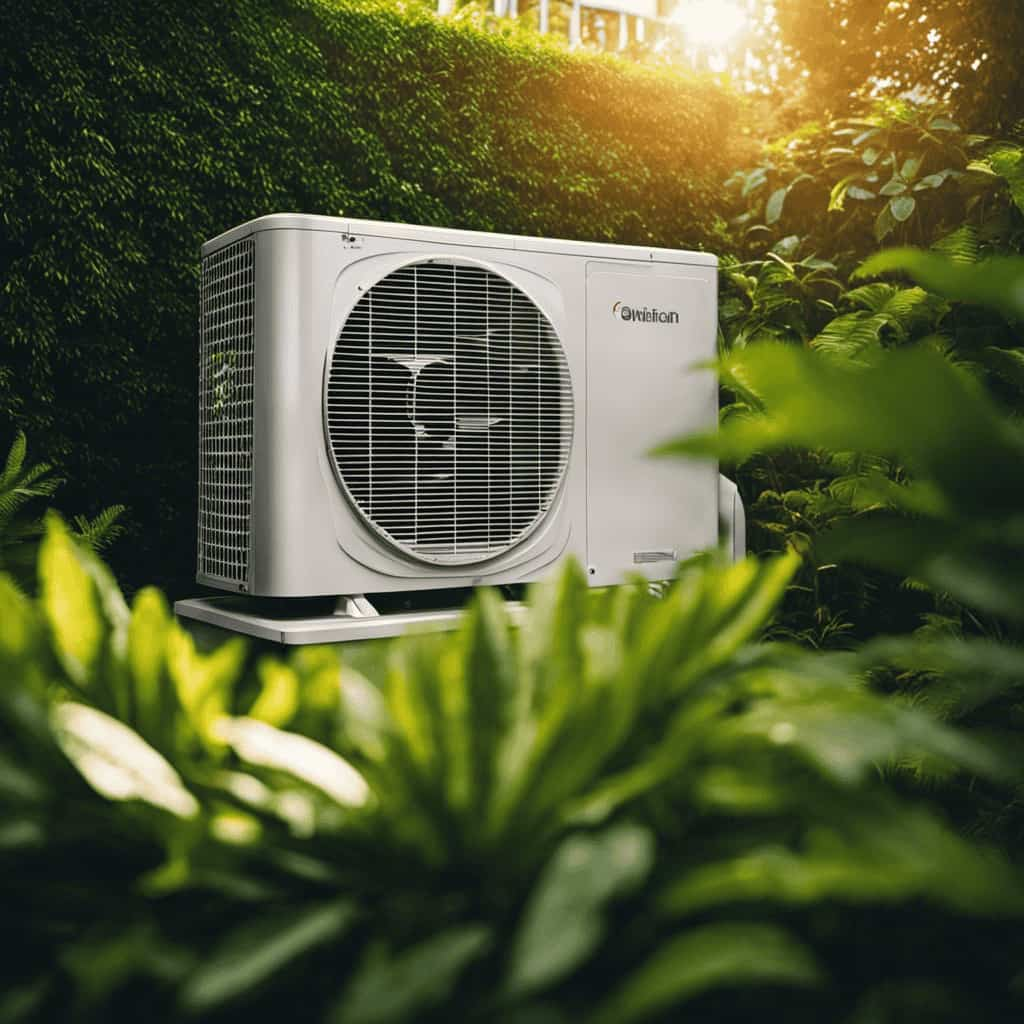
-
Environmental Impact: Heat pumps are a more environmentally friendly option as they use renewable energy sources such as air or ground heat. This helps reduce greenhouse gas emissions and minimize your carbon footprint.
-
Initial Investment: While heat pumps may have a higher upfront cost compared to traditional air conditioning systems, the long-term energy savings can offset this initial investment. It’s important to consider the payback period and potential savings over time.
-
Installation Complexity: Heat pump installations can be more complex than traditional air conditioning systems due to the need for additional components such as heat exchangers and refrigerant lines. It’s crucial to hire a professional HVAC technician experienced in heat pump installations to ensure proper setup and optimal performance.
Frequently Asked Questions
What Are the Different Factors That Can Affect the Installation Cost of an Air Conditioning Heat Pump?
Factors affecting installation cost of an air conditioning heat pump include the size of the unit, type of system, location, ductwork requirements, and any hidden costs. It’s important to consider these factors for an accurate estimate.
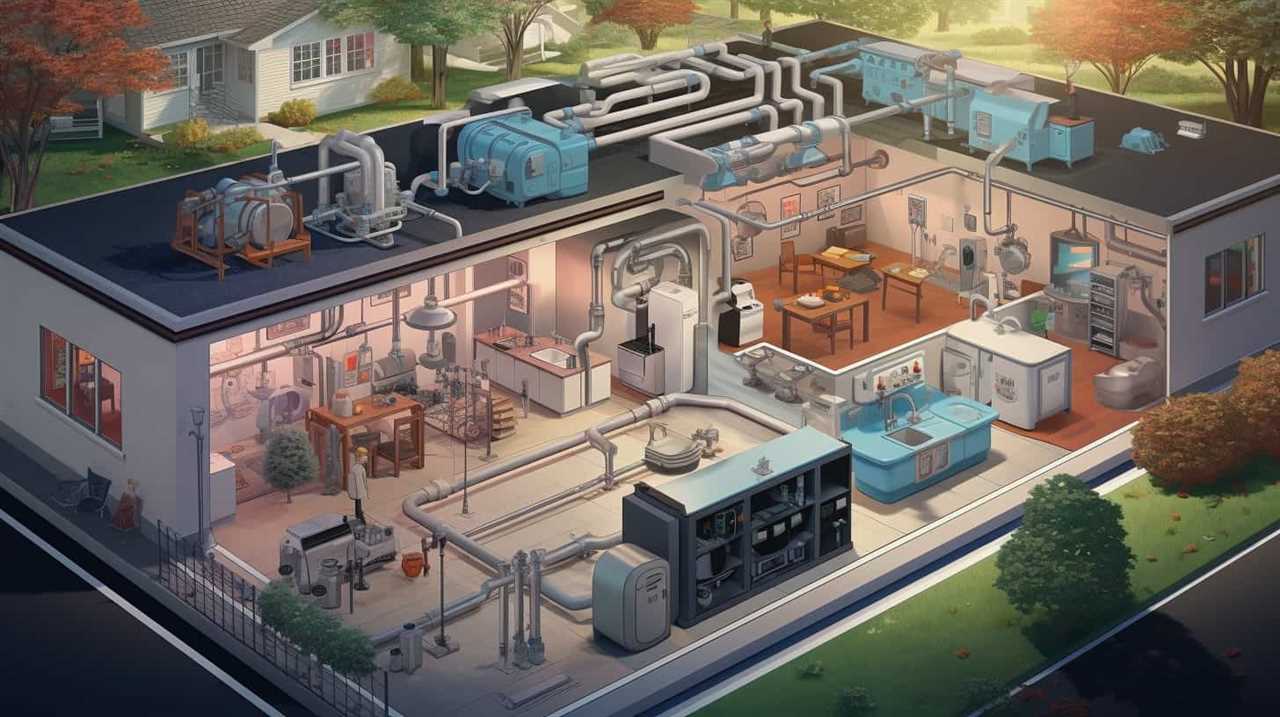
How Much Does the Average Air Conditioning Heat Pump Installation Cost?
On average, air conditioning heat pump installation costs can vary based on factors like the type of heat pump and the size of the space. The benefits of heat pumps include energy efficiency and year-round comfort.
Can You Provide a Breakdown of the Costs Involved in Air Conditioning Heat Pump Installation, Including Materials and Labor?
Sure, we can provide a breakdown of the costs involved in air conditioning heat pump installation. Factors such as materials and labor play a crucial role in determining the overall cost. Here are some tips to consider.
Are There Any Hidden Costs That Homeowners Should Consider When Installing a Heat Pump for Their Air Conditioning System?
Hidden expenses and unexpected fees can catch homeowners off guard when installing a heat pump for their air conditioning system. It’s crucial to be aware of these additional costs to avoid any financial surprises down the line.
What Are Some Tips for Saving Money on Air Conditioning Heat Pump Installation?
Tips for saving money on air conditioning heat pump installation include researching and comparing prices from multiple contractors, considering energy-efficient models, and taking advantage of any available rebates or incentives.
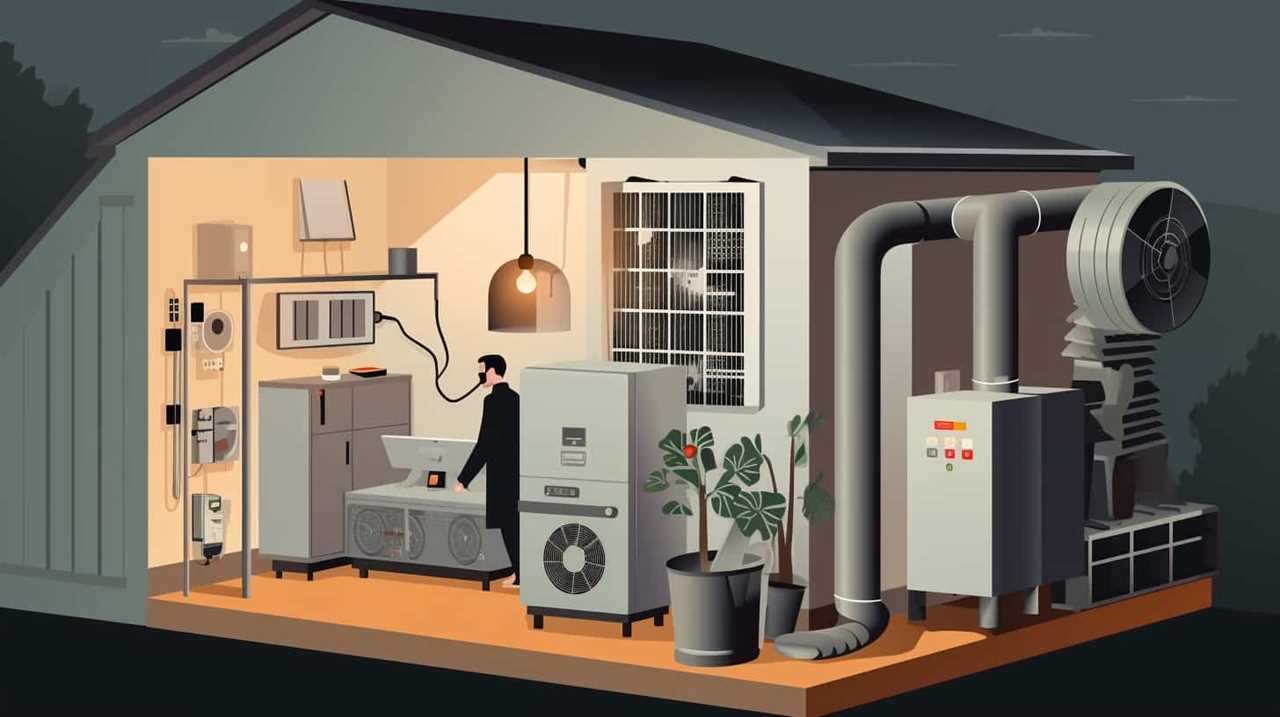
Conclusion
In conclusion, when it comes to air conditioning heat pump installation costs, it’s important to consider various factors that can affect the overall expense.
One interesting statistic to note is that the average cost of installation can range from $3,500 to $7,500, depending on the size and complexity of the project.
This figure may evoke a sense of concern for homeowners looking to invest in a heat pump system, but with proper planning, financing options, and professional installation, the benefits of energy efficiency and comfort can outweigh the initial costs.
-

 Residential and Commercial Applications2 months ago
Residential and Commercial Applications2 months agoBest Amana Heat Pump Reviews
-

 Thermal Energy Transfer2 months ago
Thermal Energy Transfer2 months agoBreakthroughs in Modern Heat Pump Systems: Thermal Energy Edition
-

 Residential and Commercial Applications2 months ago
Residential and Commercial Applications2 months agoBest Heat Pump
-

 Geothermal Heat Pumps3 weeks ago
Geothermal Heat Pumps3 weeks agoUpgrade Your Comfort with Our Efficient HVAC Systems
-

 Geothermal Heat Pumps1 month ago
Geothermal Heat Pumps1 month agoInnovative Geothermal Heat Pump Manufacturers Revolutionize Energy Efficiency
-

 Air Conditioning6 hours ago
Air Conditioning6 hours agoExploring Energy-Efficient Air Conditioning Heat Pumps
-

 Thermal Energy Transfer3 months ago
Thermal Energy Transfer3 months agoBoost Your Heat Pump Efficiency: Interactive Guide
-

 Residential and Commercial Applications2 months ago
Residential and Commercial Applications2 months agoBest Portable Heat Pump Heat & AC











